

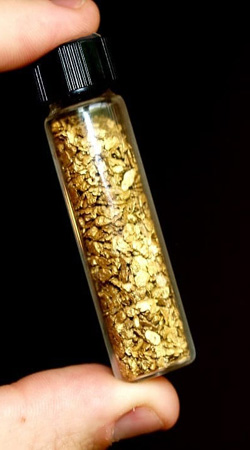 |
03.04.26- And Now, for Something Entirely Different: Iran Has Closed The Strait Of Hormuz, How High Will The Price Of Oil Go?
|
 |
03.02.26- When Central Bankers Worry About Aliens, the Problem Isn’t Aliens
Why, of course, you call on an alien invasion. The Independent recently ran the headline, “Bank of England must plan for a financial crisis triggered by aliens, says former policy expert,” with the subhead, “Financial markets could collapse if the American government confirms the existence of alien life.” Read More |
 |
02.27.26- The Mechanism of Financial Control
The narrative rested on two prongs.
|
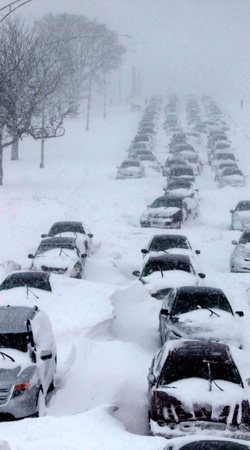 |
02.25.26- The Mechanism of Financial Control
|
 |
02.23.26- Bad Boy Gives his Bad Report Card – a Bad Report
|
 |
02.20.26- The “Super-rich” Of Wall St. Are Preparing For A SHTF Collapse
I promise you they most definitely ARE! I have very close friends who own multi-million dollar companies and I can tell you that they’re also the most concerned people I know when it comes to what lies ahead for our country. Read More |
 |
02.18.26- And Now, for Something Entirely Different: Justice is Coming
But it’s not too soon to forecast what will happen between now and this summer. The Republican legal response to years of Democrat lawfare is coming down the track like a runaway train. Get ready for legal and political turmoil to match the financial and turmoil we already see. Put on your crash helmets. Read More |
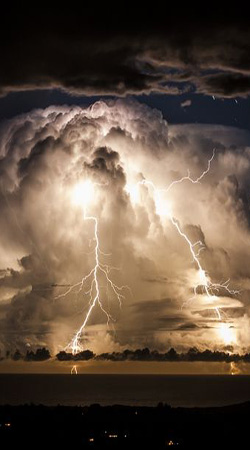 |
02.16.26- And Now, for Something Entirely Different: Early Signs of Economic Stress
It’s pattern recognition. If you’ve ever cooked pancakes long enough, you know when one is about to burn – not because you can see the future, but because you’ve seen the signs before. The bubbles change. The smell shifts. The timing feels familiar. Read More |
 |
02.13.26- The ‘Empire Killer’ Strikes Again
While military defeats, political upheavals, and external invasions often dominate historical accounts of the fall of great powers, excessive debt—the “Empire Killer”—has quietly but relentlessly eroded the foundations of empires across the centuries. Read More |
 |
02.11.26- The Hidden Cost of Government Spending (It Isn't What You Think)
It never ceases to amaze me how often big decisions are judged only by their short-term results. Read More |
 |
02.09.26- Have Fiat Money, Will Tyrannize
|
 |
02.06.26- And Now, for Something Entirely Different: A Geopolitical Earthquake
|
 |
02.04.26- Warsh or Not, The Fed’s Next Chair Will Inherit Too Much Power
|
 |
02.02.26- The True Dollar Price to Redeem an Ounce of Gold
|
 |
01.28.26- De-Dollarization? Gold Over Debt - The End Of The Keynesian
|
 |
01.26.26- The Dark Truth About Trump’s Attack on the Fed
The crime in question concerns Fed Chair Powell’s testimony to congress regarding the Fed’s renovations of its D.C. headquarters. Read More |
 |
01.23.26- Trump's Spat With The Fed Is Not About Central Bank Independence
Central banks function as the government’s banker, issue currency, maintain the payment system and manage the nation’s currency reserves. They safeguard financial stability acting as a lender of last resort to banks although separate bodies sometimes regulate the financial system. Read More |
 |
01.21.26- The Powell Affair and the Limits of The Fed’s Immunity
|
 |
01.19.26- The Myth of a Self-Financed Fed
At this point, extravagant government boondoggles are barely newsworthy. A few people batted their eyelashes last week at Trump’s proposal to expand military funding by half a trillion dollars but everyone has forgotten about it now because it was last week and attention spans are measured in seconds these days. Read More |
 |
01.16.26- The Central Banking Establishment Is Genuinely Worried About Trump, but Not for the Reasons They Say
The subpoenas concern statements Powell made to the Senate Banking Committee last summer about renovations to the Eccles Building—the Fed’s headquarters in Washington, DC. Read More |
 |
01.14.26- Major Attack on Fed’s Independence
DOJ Subpoenas Spark Dollar SelloffOn Sunday, January 11, the Department of Justice served grand jury subpoenas to the Federal Reserve over Chair Jerome Powell's congressional testimony regarding headquarters renovation costs. Gold immediately surged 3% to record highs above $4,600, the value of the USD Index declined, and the "Sell America" trade returned with a vengeance. Read More
|
 |
01.12.26- US Fed Gold Revaluation Plan, So Gold Stackers Watch Immediately
|
 |
01.09.26- 5 Signs the Fed Is Quietly Pivoting Again
The financial system, he says, increasingly resembles 2019, when cracks began showing after the Fed attempted to tighten policy. Read More |
 |
01.07.26- The Fed, Gold, and Crypto: Freedom and Competing Currencies
|
 |
01.05.26- Will The US Hit A Deflationary Wall Or Will The Fed Inflate Again In 2026?
|
 |
01.02.26- The Interest Rate Question
|
 |
12.29.25- Dallas Fed President: It’s Time to Replace the Fed’s Interest Rate Target
|
 |
12.26.25- The Economics Of Santa Claus
|
 |
12.24.25- The Next Fed Chair
But that’s just the beginning of a very complex process. Read More |
 |
12.22.25- And Now, for Something Entirely Different: This Common, Overlooked Metal will Soar in 2026
In the 1800’s the “silver from clay” was more expensive than gold. The light, silvery metal was so rare that architects crowned the Washington Monument in D.C. with a six-pound pyramidal capstone. Read More |
 |
12.19.25- How the Fed Undermines Prosperity
The term “roundabout” is not normally associated with efficiency, unless you’re an economist. Yet roundabout methods—when applied to production—are the key to prosperity. Read More |
 |
12.17.25- “Six Figures Is Survival” – Even High Earners Are Drowning Financially As The U.S. Dollar Is Transformed
|
 |
12.15.25- A Juggernaut of Destruction
|
 |
12.12.25- The Fed’s Unlawful Floor System Pays Banks Billions to Sit on Reserves
Until very recently, the Federal Reserve had been ratcheting up bank regulations. Economists generally agree that excessive bank regulation dissuades banks from extending credit for some productive projects. In a recent speech, Fed Governor Stephen Miran points to another problem with excessive regulation. In brief, “regulations enacted to shore up financial stability have constrained the Fed’s control over some elements of monetary policy transmission and the size of the balance sheet.” He refers to such a situation as regulatory dominance, since monetary policy takes a back seat to the regulatory framework. Read More |
 |
12.10.25- When a Treasury Secretary Sounds the Alarm, We Should Pay Attention
There’s an old line that those who don’t learn from history are doomed to repeat it. Personally, I’ve always thought there’s a quieter truth sitting beneath it: Read More |
 |
12.08.25- Fed expected to cut rates despite deep divisions over US economic outlook |
 |
12.05.25- And Now, for Something Entirely Different: Useless U
The UCSD paper shows that between 2020 and 2025, the number of students with math skills below high school level increased nearly thirtyfold. Additionally, 70% of these students are below the middle school level. Read More |
 |
12.03.25- The Fed vs. The Constitution
|
 |
|
 |
11.28.25- And Now, for Something Entirely Different: Where Will All the
|
 |
11.26.25- The Decline Of Developed Nations' Fiat Money
Today, we are living the decline of developed economies’ fiat currencies in real time. The global reserve system is slowly but decisively diversifying away from a pure fiat currency anchor towards a mixed regime where gold plays the dominant role, not fiat currencies. Read More |
 |
|
 |
11.21.25- How the Fed Messes It All Up
Maximum employment, stable labor prices, and minimum risk premiums on long-term interest rates each actually require maintaining zero growth of the money quantity — that is, holding the money quantity constant. Read More |
 |
11.19.25- And Now, for Something Entirely Different: Is Trump Killing His Movement and Was Epstein Running
|
 |
11.17.25- And Now, for Something Entirely Different: The Bubble Teeters
It has seemed that way a few times over the past year, but so far each selloff has proved to be a blip on a relentless climb upwards. But now we’re starting to see signs of weakness in the sector that’s driving markets higher: AI/tech. Read More |
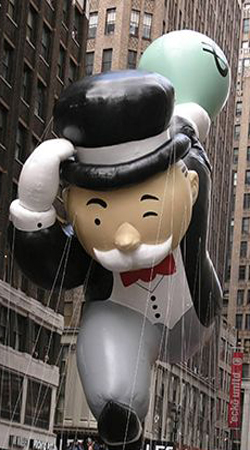 |
11.14.25- Revealed: The Real Reason Behind America’s Adoption of Central Banking and Income Tax in 1913
It was the year Congress passed the Federal Reserve Act and ratified the 16th Amendment to the US Constitution, which authorized a federal income tax. At first glance, these two unfortunate developments may seem unrelated. Yet what are the odds that the US would adopt both a central bank and an income tax in the very same year? Read More |
 |
11.12.25- Printer is Coming
And last month, it finally happened. Gold fell about 10% from a high of around $4,400 to $3968. The GDX gold miner ETF slipped from a high of $85 to $68. Almost exactly -20%. Read More |
 |
11.10.25- "This Time Really Is Different": Ray Dalio Warns Fed Is 'Stimulating The Economy Into A Bubble'
Typically, as CoinTelegraph's Vince Quill reports, the Federal Reserve typically eases interest rates when economic activity is stagnating or declining, asset prices are falling, unemployment is high and credit dries up, as seen during the Great Depression of the 1930s or the 2008 financial crisis, Read More |
 |
11.07.25- Why the Gold Surge Signals a Crisis of Confidence in the US Dollar
Doug Casey: The answer is all of the above. Read More |
 |
11.05.25- Can’t Afford a Vacation?
|
 |
11.03.25- Easy-Money Policy Accelerates as the Fed Freezes QT and Lowers
|
 |
10.31.25- Easy Money, Hard Metals, and the Fed’s Next Move
|
 |
10.29.25- The Fed’s Pivot: The Return of Easy Money and the Inflation Storm Ahead
Speaking at the National Association for Business Economics conference in Philadelphia recently, Powell said:
|
 |
10.27.25- In the Blink of an Eye the National Debt Exceeds $38 Trillion
|
 |
10.24.25- Forget the "Great Wealth Transfer"… This Is Much Worse
|
 |
10.22.25- And now, for Something Entirely Different: EBT Serfs Threaten Violent Mass-Shoplifting Spree if Food Stamps Cut
Via CNN (emphasis added): “Roughly 42 million people are at risk of losing critical food assistance in November amid the federal government shutdown. And it’s not clear whether the Trump administration will step in to find the funds to continue paying benefits, as it has with other priorities. Read More |
 |
10.20.25- The Coming Crisis of the American Tax State
The following article was originally published by the Mises Institute. The opinions expressed do not necessarily reflect those of Peter Schiff or SchiffGold. Read More |
 |
10.17.25- Fed Chair Powell: Balance Sheet Reduction May End Soon
|
 |
10.15.25- For Many, This Recession Will Feel Like a Depression
|
 |
10.13.25- Death of the Dollar
|
 |
10.10.25- The Coming Melt-Up or Meltdown—and How to Protect Yourself
|
 |
10.08.25- How a Fed Overhaul Could Eliminate the Federal Debt Crisis, Part I: The Fed’s Hidden Drain
|
 |
10.06.25- Inflation, Debt, and Gold: Daniel Lacalle on the Fed’s Slow-Motion Crisis
The two explored the Federal Reserve’s role in driving inflation, the global sovereign debt bubble, and the implications for gold and silver investors. Read More |
 |
10.03.25- Days of Judgment
You better believe Martha Stewart baked a cake last night — the lovely Gâteau Opéra perhaps? — when she got the news that the ham sandwich known as James Comey got indicted by a federal grand jury twenty-two years after that same ham sandwich indicted the goddess of hearth and home for lying to the FBI and the SEC over a trumped-up insider-trading rap, and sent her to federal prison for a five-month stretch plus five additional months of confined home-making and two years of supervised redecorating. Read More |
 |
10.01.25- Welcome to the Age
|
 |
09.29.25- De-dollarization and
|
 |
09.26.25- Fed Fumbles Basic Arithmetic, Putting Your Savings in Danger
|
 |
09.24.25- How Will the Fed Rate Cut Impact the Gold Market?
|
 |
09.22.25- Inflation: The Hidden Embezzlement
The following article was originally published by the Mises Institute. The opinions expressed do not necessarily reflect those of Peter Schiff or SchiffGold. Read More |
 |
09.19.25- Home Improvement
Today, the Fed lowered interest rates, making debt more attractive. Fortune:
|
 |
09.17.25- You’re Paying the Price for the Fed's Failed Experiment
Treasury Secretary Scott Bessent did something unusual last week: he told the truth about the Federal Reserve. Read More |
 |
09.15.25- The Unvirtuous Cycle of Rate Cuts
|
 |
|
 |
09.10.25- Is It Simply "Too Late" To Fix?
|
 |
09.08.25- And Now, for Something Entirely Different: Could Trump End Up Triggering The Globalist “Great Reset”?
|
 |
09.05.25- Trump’s Attack
|
 |
09.03.25- Fed Feuds Make Headlines, but Debt Makes the Rules
We live in an age of distractability. Every second that you’re awake of every day of the week, we are surrounded by, submerged in a constant never-ending barrage of information, marketing, and viewpoints. Read More |
 |
09.01.25- Some clear thinking on why Lisa Cook should be immediately sidelined
After months of lockdowns, “mostly peaceful” protesters were in the streets screaming to defund the police. And no one was allowed to have a contrary opinion. Read More |
 |
08.29.25- Trump’s War With the Fed Heats Up
The attack came in the form of an opinion piece in Bloomberg. In it, he argued that Trump’s trade war with China threatened to crash the U.S. economy. Read More |
 |
08.27.25- The Mar-a-Lago Accord Confirmed:
If you’re still unfamiliar with what Trump’s Reset entails, I strongly recommend checking out Matt Smith’s comprehensive analysis. He’s done the heavy lifting of connecting dots that were only hinted at in Miran’s original white paper. Read More |
 |
08.25.25- The Fed is About to Start Cutting Right as Inflation Reignites
The headline numbers for the Consumer Price Index (CPI) for the month of July pointed to a slowdown in inflation: month over month (MoM) CPI came in at 0.2% while year over year (YoY) at 2.7% on expectations of 0.2% and 2.8%, respectively.Read More |
 |
08.22.25- The Fed Brews Up a Nasty Potion
Hot tech IPOs like Circle are doubling and tripling on day 1. Home prices have soared to unaffordable levels. Meme coins and meme stocks are back in vogue. Read More |
 |
As AI systems continue to grow in intelligence, many believe the day will come when a ‘superintelligent AI’ becomes more powerful than its creators. Read More |
 |
08.18.25- Federal Reserve Has Led To Total Economic Collapse
|
 |
08.15.25- Interest Rates Should Be Higher, Not Lower
In a free market, interest rates are determined by the supply and demand for credit. Savers provide capital (supply) while borrowers like businesses, consumers, and governments create demand. Rates would reflect the real cost of capital. They would balance risk, inflation expectations, and real economic conditions. Read More |
 |
|
 |
08.11.25- Experts Were Wrong. The Economy’s Strong—But the Fed..
|
 |
08.08.25- How Fed Dependence on Bogus Data Invites Disaster
Here’s a typical example: “Our no child goes to sleep hungry program has reduced hunger by 10 percent.” Read More |
 |
08.06.25- Stagflation Keeps The Fed's Hands Tied As Trump Slings Insults
However, there were some evident cracks in the committee as two members dissented from the majority decision. It was the first time multiple committee members opposed the majority since late 1993. Read More |
 |
08.05.25- Powell Holds the Line
Trump wants Powell to cut interest rates so the U.S. government can save money on its debt financing costs. Powell wants to wait and see how tariff policies impact consumer prices before cutting – or raising – rates. Read More |
 |
08.02.25- Shadow Banking Can Cause Another Financial Crisis For Big Banks
If you follow our banking work, you are well aware of these issues. Still, the FSB’s report is concerning, as the global regulator has essentially stated that the shadow banking industry is entirely untransparent and poses major risks to financial stability. Read More |
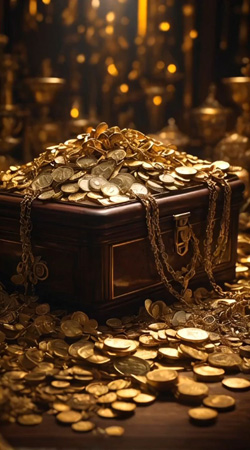 |
08.01.25- A Federal Reserve–induced depression!
After World War II, the U. S. moved from a wartime footing to a peacetime, private sector–controlled economy. Europe benefited from the Marshall Plan, which included generous protections in terms of tariffs for Europe and the rest of the world at the expense of U.S. businesses. President Trump is successfully restoring balance, almost 35 years after prior administrations should have restored free trade and tariff equilibrium. Read More |
 |
07.31.25- Is The Federal Reserve Purposely Trying To Destroy The U.S. Economy?
|
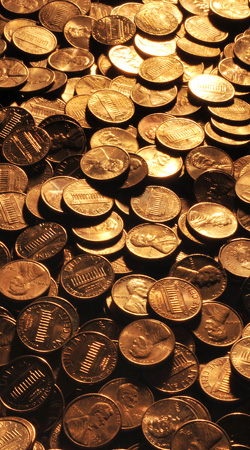 |
07.30.25- And Now, for Something Entirely Different: A Conspiracy Comes to Light
|
 |
07.22.25- Is the Almighty Dollar
The greenback declined 12% in the first six months of 2025. This is the worst six month start for the dollar since 1973. And unfortunately, it doesn’t look as if things are about to improve any time soon. The dollar has been in a clear downtrend (blue lines in the chart below) since the start of the year. And despite such a steep decline, the $USD is failing to even mount a decent bounce: it was clearly rejected by overhead resistance (red line in the chart below) just last week. This is EXTREMELY bearish. Read More |
 |
We’re not talking about a few over-leveraged traders getting wrecked. Read More |
 |
07.14.25- And Now, for Something Entirely Different: From The Comey-Brennan Investigations To The Middle East And Ukraine-Russia, A lot Of Things Are In Motion Now, Expect Cascades Of Developments
No one in America — not even the most deranged, spike-faced, pink-haired transtifas — believes the latest Epstein story as played out by Mr. Trump and AG Bondi in this week’s cabinet parlay: nuthin to see, just a bunch of pointless child porn, fuggeddabowdit. . . Read More |
 |
07.12.25- Get Ready for Big, Beautiful Inflation
But with major changes to the IRA now sealed into law under the banner of Trump’s “Big, Beautiful Bill” (BBB), what Americans are left with is an expansion of the money supply. That’s good news for gold, but terrible for American savers. Read More |
 |
The company is headquartered in the heart of Silicon Valley, in Mountain View, California. It specializes in developing LiDAR sensors for self-driving cars and robotics. Aeva uses something called frequency-modulated continuous wave (FMCW) technology. This can measure both distance and velocity simultaneously. It is referred to as 4D LiDAR. Read More |
 |
07.10.25- Inflated Dreams: How the Fed Blew Up Housing Costs
The following article was originally published by the Mises Institute. The opinions expressed do not necessarily reflect those of Peter Schiff or SchiffGold. Read More |
 |
07.09.25- The Fallacy of “Measuring” Inflation
|
 |
07.08.25- Could Bitcoin Replace the Dollar?
|
 |
07.07.25- Fiat Currency Debasement Driving Central Banks to Gold
|
 |
07.05.25- And Now, for Something Entirely Different: Stand By for American Implosion
|
 |
07.04.25- And Now, for Something Entirely Different: Superintelligence Will Never Arrive
|
 |
07.03.25- Trump’s Handwritten Note to Powell: Lower Rates Abroad,
Amid growing calls for the Federal Reserve to begin lowering interest rates, White House officials (and the president himself) have adopted the tactic of pointing to the nominal policy rates of foreign central banks as evidence that the Fed is behind the curve. Read More |
 |
07.02.25- This Is the Worst Year for the U.S. Dollar Since The Oil Crisis of 1973
|
 |
07.01.25- Trump Will Replace Powell With an Even Bigger Moron
|
 |
06.30.25- Trump v Powell: The Credibility Cost of Politicized Monetary Policy
The tension between President Donald Trump and Federal Reserve Chair Jerome Powell has reignited, following the Fed’s recent decision to hold interest rates steady. President Trump stated again that he might consider firing Powell, something he had previously ruled out. Read More |
 |
06..28.25- The Powell Fed is Going to Trigger Another Crisis
I’m not saying this for dramatic effect. Powell’s ignorance of basic macroeconomics was on stark display in his testimony before Congress earlier this week (h/t Bill King). Read More |
 |
06.27.25- How the Fed Made Housing Unaffordable
|
 |
06.26.25- How We Protect the Fed From Its Own Consequences
|
 |
The proposed facility’s site is the Dade-Collier Training and Transition Airport, tucked along the eastern edge of Big Cypress National Preserve, about 55 miles west of Miami. Florida had big plans for it back in the day, aiming to transform it into the "Everglades Jetport," a massive airport poised to dwarf all others. But eco-activists and environmental worries slammed the brakes on that dream in the 1970s, leaving the project grounded. Read More |
 |
06.24.25- I Still Think Trump Will Fire Jerome Powell
Should you desire a break from worrying about how the war will end that President Donald Trump started against Iran, consider worrying about how the war will end that Trump started against the Federal Reserve Board. In Iran, the targets were uranium enrichment and storage sites in Fordo, Natanz, and Isfahan. At the Fed, the target is Jerome Powell. Read More |
 |
06.23.25- "END THE FED NOW" Here's How The Federal Reserve is FUNDING
|
 |
The FOMC voted unanimously today to keep the Fed’s five policy rates unchanged, for the fourth meeting in a row, after cutting by 100 basis points in 2024. Read More |
 |
06.20.25- Housing Finance Chief to Newsmax: It's Time for Fed's Powell to Resign
The Fed on Wednesday held its benchmark interest rate steady at 4.25% to 4.5%, keeping borrowing rates elevated for Americans for the fourth straight time. The last time it cut rates was in December, by a quarter of a percent. President Donald Trump responded later that day in a post on Truth Social calling Powell “a real dummy, who’s costing America $Billions!” Read More |
 |
06.18.25- Gold No Longer for ‘Lunatics’ as War Heats Up; Fed Plans Fake Money
|
 |
06.17.25- The U.S. Dollar and
|
 |
06.16.25- U.S. stocks rise despite Israel-Iran tensions; Fed meeting looms
At 09:32 ET (13:32 GMT), the Dow Jones Industrial Average rose 205 points, or 0.5%, the S&P 500 gained 40 points, or 0.7%, and the NASDAQ Composite climbed 190 points, or 1%. Read More |
 |
06.14.25- Interest Rates
Only five years ago, short-term rates flirted with zero and the 10-year Treasury rate was less than one percent at .89%. The increase in rates since early 2020 is something to behold. The damage to bond prices is evident on both charts below…Read More |
 |
06.13.25- Trump Can And Should Fire Fed Boss Over Economy
This is old hat for Powell, who, after being installed by Trump in 2018, got straight to work undermining his boss’s economic recovery. Read More |
 |
06.12.25- Fed's 'Shady' Gold Secrets Spark Audit Bill; A 'Reckoning is Near'
|
 |
06.10.25- US Layoffs Spike: Powell Needs ‘Big Boy Pants’ Urges Ex-Fed Insider
|
 |
06.09.25- And Now, for Something Entirely Different: The other big news (and thankfully good news) from yesterday
While most of the news yesterday was focused on the nuclear Twitter war between Elon Musk and Donald Trump, the Supreme Court issued a landmark ruling in favor of common sense. Read More |
 |
06.07.25- How Inflation Undermines Culture and Values
In the previous article, I discussed the social consequences of the welfare state; now I want to focus on inflation—or more precisely, on central bank policy. Inflation can broadly be defined as an artificial increase in the money supply that ultimately drives up prices, but this definition overlooks the fact that it is a process in which prices first rise in the capital goods of industries furthest from final consumption and then gradually spread throughout the entire system. Read More |
 |
06.05.25- Central Banks Added More Gold in April Despite Record Prices
Globally, central banks officially added a net 12 tonnes of gold to their reserves in April, according to the latest data compiled by the World Gold Council. This was 12 percent lower than March and below the 12-month average of 28 tonnes. Read More |
 |
|
 |
06.03.25- Fed Chair Powell's speech today looms as interest rate cut debate rages on
The May 29 faceoff was Powell's first visit to the White House during Trump's second tour. In a statement, Powell's office said the meeting's agenda was to "to discuss economic developments, including for growth, employment, and inflation." Read More |
 |
06.02.25- The BRICS Go Their Own Way
Time for the annual BRICS+ Leaders Summit. The BRICS have hundreds of meetings over the course of the year on every topic from sports to women’s issues to agriculture. But there is only one Leaders Summit. That’s when the heads of state of the members convene to discuss policy issues and to make announcements of major importance. Read More |
 |
05.31.25- The Fed Drops QT to $5B a Month – Ensuring the Balance Sheet Will Stay Bloated
Breaking Down the Balance SheetThe Fed recently announced a further reduction in the balance sheet runoff from $25B a month to $5B a month. The data shows that they have been reducing the pace of runoff but have not yet gotten down to the target $5B a month. Read More |
 |
05.30.25- The Fed is Derelict in it's Duty to the American People
|
 |
05.29.25- And Now, for Something Entirely Different: Loneliness
As regular readers of this column may know, I like to begin each edition with a story from my life that I hope encapsulates the theme of the book I am featuring. When I started thinking about writing a column on loneliness, I’d sit down in my reading chair at home to quiet my mind or I’d go for a walk in my pleasant neighborhood amidst the fresh spring air and budding trees and search my memory for times when I felt lonely. As I thought back through my life in search of times of loneliness, I found that I either had none or that I had many. That is, it seems that either I’ve never been lonely, or I’ve been lonely most of my life and, like a fish in water, never really knew it because I had nothing else with which to compare it. Read More |
 |
05.28.25- And Now, for Something Entirely Different: Flashback to 2013: Bitcoin at $93
The article was titled “Bitcoin’s Moment”, and BTC was trading at $93 at the time. Here’s an excerpt: Read More |
 |
05.27.25- Did Smoot-Hawley Cause the Great Depression?
|
 |
05.26.25- The Dollar Has Lost 99% of Its Value
Peter also tackles issues from student debt to the housing market, warning listeners that the current system is fueled by unsustainable government intervention. Read More |
 |
05.24.25- Interest Rates Rise Again as Treasury Auction Comes Up Short
|
 |
05.23.25- Warming Up the Printing Presses
Earlier this month it quietly purchased a cool $43.6 billion in U.S. Treasuries. This included $8.8 billion in 30-year Treasury bonds on May 8. Several days before that, it bought $20.4 billion in 3-year notes and $14.8 billion in 10-year Treasury notes .Read More |
 |
05.22.25- Slash Military Spending
When Moody’s made its announcement, the House Budget Committee was scrambling to get the votes to pass legislation extending the 2017 tax cuts. Read More |
 |
05.21.25- Why is the Fed quietly buying billions in bonds — and hoping nobody notices?
Quietly returning to the quantitative-easing trough isn’t standard Fed housekeeping — it’s like a bank robber returning to the scene because he forgot his car keys. Read More |
 |
05.19.25- MMT’s Barely-Hidden
|
 |
05.17.25- And Now, for Something Entirely Different: Is Christian Nationalism The Solution To The Frailty Of Liberalism?
|
 |
05.16.25- The Logic of Debt Under Fiat:
Unlike gold or silver as sound money, under fiat currency thrift is penalized, financial surpluses are burdens, and losses are good. With tax write-offs, loss harvesting, and interest deductions, more debt is (almost) always better. Read More |
 |
05.15.25- The Fed Is Wrong… And It’s Going to Cost Investors a Fortune
For five months now, the Fed has refused to cut interest rates despite clear cracks showing up in the labor market, as well as companies like Southwest Airlines, Chipotle, McDonalds and even Walmart warning about a downturn in consumer spending. Read More |
 |
05.14.25- WARNING: Yields Are Signaling Something Big
|
 |
05.13.25- States Move Toward Sound Money With “Transactional Gold”
|
 |
05.12.25- Fed Holds Steady
At the post-meeting press conference, Fed Chair Jerome Powell said the committee continues to view the US economy as solid, despite rising uncertainty. He noted that unemployment remains low and the labor market is at or near maximum employment. But he also cautioned that the risks of both higher unemployment and elevated inflation have increased. Read More |
 |
05.10.25- Will Trump Follow Nixon’s IRS Road to Ruin?
|
 |
05.09.25- The Fed Leaves Fed Funds Rate at 4.5% as Economic Storm Clouds Gather
|
 |
05.08.25- Inflation: Looking Beyond Aggregates
|
 |
05.07.25- The First Crypto Currency: The Dollar
|
 |
05.06.25- And Now, for Something Entirely Different: It’s the return of the Inquisition…
A large group of individuals who called themselves “Good Christians” were sort of proto-Protestants in that they still believed in the basic tenants of Christianity, but they did not adhere to the strict belief system of Catholicism, nor submit to the authority of the Church. Read More |
 |
05.05.25- Can (or Will) the Fed Paper Over the Coming Recession?
In our latest Finance U podcast, Paul Kiker and I dove deep into the current economic landscape, focusing on some critical indicators and the implications of recent policy changes. Read More |
 |
05.03.25- Planned Demolition
|
 |
05.02.25- Unsound Banking: Why Most of the World’s Banks Are Headed for Collapse
This brief article will explain why the world’s banking system is unsound, and what differentiates a sound from an unsound bank. I suspect not one person in 1,000 actually understands the difference. As a result, the world’s economy is now based upon unsound banks dealing in unsound currencies. Both have degenerated considerably from their origins. Read More |
 |
05.01.25- Banks could be extinct in 10 years – Eric Trump
Banks could face extinction within a decade if they fail to embrace blockchain technologies, US President Donald Trump’s second son Eric, a crypto entrepreneur, has warned. Read More |
 |
04.30.25- The Looming Threat of Credit Collapse and Deflation
The threat of a credit collapse and subsequent deflation currently outweigh the risks associated with higher inflation. This article explores the threat of a credit collapse and its implications for economies and societies worldwide. Read More |
 |
04.29.25- Dallas Fed Business Index Plunges to -35.8, Raw Material Prices +48.4
Today, the Federal Reserve Bank of Dallas released the Dallas Fed Manufacturing Report for April. Read More |
 |
04.28.25- Should Economists Champion Fed “Independence”?
|
 |
04.26.25- Fed’s Desperate Bid to Stop Gold Price - Why it Will Backfire
|
 |
04.25.25- Faith in the Dollar Failing – We’re Seeing the Tremors
It’s said that if you asked a fish if water is wet, the fish would reply, “What is water?” Read More |
 |
04.23.25- Trump Wants the Fed To Pump More Easy Money
|
 |
Gold shatters $3,400 and forecasters set their sights on $4,000 Read More |
 |
04.22.25- Bare Naked Facts About Fed Independence
Chair Powell has been particularly vocal about the Fed’s independence lately. His statements are the result of provocation by some, including President Trump, who have called for various actions including an audit of the Federal Reserve, firing the current Chair (Powell), and abolishing the Fed. The calls for action and the inflammatory rhetoric are usually the result of anger and frustration about Fed economic policies, notably the level and direction of interest rates. Read More |
 |
04.21.25- Does the Fed Shave With Occam’s Razor?
|
 |
04.19.25- What will it take for the Fed to become more dovish? Macquarie weighs in
Policymakers have recently suggested that they are waiting for more clarity around the broader economic situation in the wake of erratic tariff measures from U.S. President Donald Trump. Read More |
 |
04.18.25- "If I Want Him Out, He'll Be Out Real Fast!" - Trump Says Powell
|
 |
04.17.25- "Termination Cannot Come Fast Enough!" - Trump Pummels "Always Too Late & Wrong" Powell
|
 |
04.16.25- Who Pumped Up
The thing about bubbles is that they eventually pop. All they need is a pin. Tariff policy might be the pin that pops this bubble, but even if it isn’t, there is a pin out there with this bubble's name on it. Read More |
 |
04.15.25- How the Government Is Quietly Destroying Your Freedom and Stealing Your Wealth
|
 |
The Money Supply Keeps Growing as the Fed Backs Off Monetary “Tightening”
|
 |
04.12.25- Is Sound Money Politically Impossible?
|
 |
04.11.25- 9.0 Magnitude “Bondquake”
Bad news first… Not 1 in 100,000 Americans have a clue about what’s really going on under the surface of the financial markets this week. They see tariff headlines, talking heads, Trump tweets, whipsaw markets… but they don’t have a clue as to the “underwater earthquake” that just happened on Monday. Read More |
 |
04.10.25- BREAKING: Fed Preps $2T Bailout as Hedge Fund Trade Implodes
|
 |
04.09.25- The Federal Reserve Protection Racket
|
 |
04.08.25- The Future of Money: The Fed, Big Banks, and Bitcoin
|
 |
Retired Lieutenant General Michael Flynn has publicly called for the Department of Justice to launch criminal investigations into what he described as treasonous actions by high-ranking Obama-era officials. In an appearance on the Man In America podcast last month, Flynn said that the nation cannot move forward unless there is accountability at the highest levels.Read More |
 |
|
 |
04.04.25- And Now, for Something Entirely Different: Trump Takes a Bite of Apple
It is still early, and there is much to digest. But I’m starting to get a feel for winners and losers in this newly-tariffed world. In the losers category, the most obvious one so far is Vietnam. Read More |
 |
04.03.25- Inflation as a Centralizing Force
Inflationism is as much a tool as it is an ideology and a phenomenon. Inflation, of course, promotes consumption at the moment as prices change faster than incomes. It benefits borrowers at the expense of lenders. It benefits first and earlier receivers—those closest to the money spigot—at the expense of later receivers. It also provides the perfect tool for the managerial class that James Burnham and Sam Francis describe for the further expansion and centralization of power. Read More |
 |
04.02.25- Fed Interest Rate and QE Policy Mistakes and Silly Fed Comments
The Fed’s big mistake repeated and then doubled down was not considering asset prices, especially home prices in interest rate policy. When you are clueless about inflation you cannot possibly get policy right. The tendency is to overshoot in both directions creating asset bubbles of increasing amplitude over time. Read More |
 |
04.01.25- Status of US Dollar as Global Reserve Currency: Central Banks Diversify into Other Currencies and Gold
|
 |
|
 |
03.29.25- Fed Chair Admits He's Powerless to Stop Stagflation Threat
Ever since Paul Volcker took the helm at the Federal Reserve back in 1979 and ended the decade of stagflation, the Federal Reserve has played a key role influencing the American economy. Read More |
 |
03.28.25- Playing with Fire: Fed’s Fallout
|
 |
|
 |
03.26.25- The Fed is Ignoring the Data
Yes, this is the Fed’s thinking. They’ve even admitted that Fed staff are assuming “full retaliation” for whatever tariffs the Trump administration introduces. What are these people smoking? Read More |
 |
A landmark ruling in September that directed the U.S. Environmental Protection Agency (EPA) to address the “unreasonable” risk fluoride in drinking water poses to lowering IQ in children has become a tipping point, Berhenne told The Epoch Times in an email. Read More |
 |
03.24.25- Fed Chair Says Everything's Fine; So Did the Fed Chair in 2007
If history is any indication, you should probably be worried about a recession. During his press conference following the March FOMC meeting, Powell called the economy “strong overall,” and he brushed aside rising concerns about a recession, saying, “We don’t make such a forecast.” Read More |
 |
03.22.25- That Didn't Take Long: Post-Fed Stock Rally Dies, Crash Resumes
|
 |
03.21.25- An 'Uncertain' Fed Slows Quantitative Tightening
|
 |
03.20.25- Burn-it-All-Down Powell Claims Inflation Will be Transitoryand Promises to Increase it with More Easing!
|
 |
03.19.25- 19 Reasons Why The Federal Reserve Is At The Heart Of Our Economic Problems
|
 |
03.18.25- Retail Sales Plunge, Manufacturing Survey Tanks, Economy Starting To Unravel?
|
 |
03.17.25- And Now, for Something Entirely Different: Kennedy Assassination Mysteries
|
 |
03.15.25- Powell's Dangerous Trap: Why Rate Cuts Could Crash Markets
|
 |
03.14.25- Will the Fed Ride to the Rescue?
The Dow Jones Industrial Average peaked at 45,014 on December 4, 2024, and was at 41,911 by March 10, 2025, down 3,101 points or 6.9% in just over three months. The S&P 500 Index peaked at 6,130 on February 18, 2025, and was at 5,614 on March 10, 2025, down 516 points or 8.4% in less than one month. Read More |
 |
03.13.25- The Fed Can’t Save the Market or the Economy
|
 |
03.12.25- And Now, for Somethin Entirely Different: The Glow of the Gaslight
CBS 60-Minutes’ Gaslighter-in-Chief Scott Pelley was at it again Sunday night trying to put over the story that Donald Trump had unfairly cashiered a broad swathe of federal agency Inspectors General — whose job it is to investigate crime, mischief, and administrative malfeasance. In the spotlight sat one Hampton Dellinger, Special Counsel to the independent Office of Special Counsel, who just resigned after a court battle over his firing weeks ago.Read More |
 |
03.11.25- Why the Fed Considers “Pausing or Slowing” QT “Until the Resolution of the Debt Ceiling Situation”
|
 |
03.10.25-They Were Just Going to Pretend This Massive Breach Didn’t Happen…
The publication exposed the private tax records of some of America’s most successful citizens—Elon Musk, Jeff Bezos, Warren Buffett, and others. Read More |
 |
03.08.25- Unmasking Trump’s
The following article was originally published by the Mises Institute. The opinions expressed do not necessarily reflect those of Peter Schiff or SchiffGold. Read More |
 |
03.07.25- It’s Happening: Congress To Vote on ‘End the Fed’ Bill To
Republican Senator Mike Lee unveiled Rep. Thomas Massie’s (R-Ky.) proposed “Federal Reserve Board Abolition Act” in a post on X Wednesday, calling for a one-year wind-down of the Fed’s Board of Governors and its numerous Federal Reserve banks, widely blamed for the US dollar’s decline, inflation, and the national debt spiral. Read More |
 |
03.06.25- Trump’s “Wild West” Crypto Era
But what he announced on Sunday was quite different… Over the past week Trump has made two major cryptocurrency moves that signal we are entering a new wild west era. Read More |
 |
03.05.25- The U.S. is Hurtling
My prediction wasn’t driven by political bias but by hard data and reliable recession indicators, which had signaled economic trouble long before Trump’s win. And now, as expected, a growing body of evidence confirms that the odds of an imminent U.S. recession are surging. Read More |
 |
03.04.25- “They Can’t Prevent the Crash That Is Going To Happen”
|
 |
03.03.25- Elon: Audit the Fed
He even suggested Ron Paul could lead the team. DOGE has already found at least $55 billion in waste and fraud. The Fed could ramp that up ten-fold. Read More |
 |
03.01.25- The Latest Bad Premise Could Be a Disaster for the US Dollar
|
 |
02.28.25- 17 Signs That America’s Long Economic Slide Threatens to Become an Economic Avalanche
|
 |
02.27.25- How FDR’s Attack on the Gold Standard Spawned an Age of Inflation
|
 |
02.26.25- Why Is the Fed Afraid of a
|
 |
02.25.25- The Fed, With No Earnings, Is Taking Us on a Magic Carpet Trip
|
 |
02.24.25- The Fed Might Have Just Confirmed QE 5.0 – Here’s What That Means for You
|
 |
02.22.25- The Answer To 1913 Is 2025: 3 Charts That Show Why The Income Tax,
|
 |
02.21.25- And Now, for Something Entirely Different: Class Warfare: The Exploitation of Taxpayers by Federal Workers
Some workers launched lawsuits against the Trump administration. Others went on legacy media television shows to claim they have been mistreated. Read More |
 |
|
 |
02.19.25- Paper Money and the Fed Have Destroyed the Penny and the Rest of Our Money
The penny phenomenon is good example of what the federal government — and, specifically, the Federal Reserve — has done to our money. Ever since the Fed and a paper-money system were established in 1913 and the 1930s, the Fed has destroyed the value and stability of American money. Read More |
 |
02.18.25- Why Official Inflation Reports Are Dead Wrong
|
 |
02.17.25- The Fed Has Stopped Pretending that Price Inflation Is Going Away
|
 |
|
 |
02.14.25- Fed Policies Yield Very Bad Things
|
 |
02.13.25- Will the Federal Reserve Blame Tariffs for the Price Inflation
The Core PCE Price Index, which excludes food and energy, rose by 0.2 percent this month and remains stubbornly high at 2.8 percent annualized. The headline PCE Price Index increased by 0.3 percent, the first 0.3 percent monthly increase in eight months. This has pushed the annualized increase to 2.55 percent, the highest in seven months. Read More |
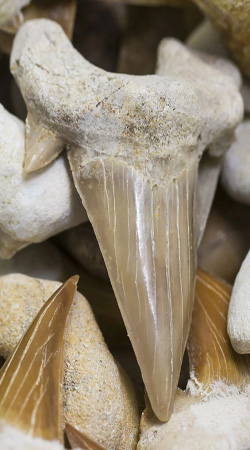 |
|
 |
02.11.25- Musk Endorses Ron Paul for Federal Reserve Chairmanship
Elon Musk, leader of the Department of Government Efficiency (DOGE), suggested on Monday that former Congressman Ron Paul (R-Texas) could be an ideal candidate for Federal Reserve Chairman. Responding to remarks by Turning Point USA founder Charlie Kirk, Musk took to social media to echo support for Paul, stating, “Great idea!” in response to Kirk’s assertion that Paul would excel in the role. Read More |
 |
02.10.25- Why is Elon Musk supporting Ron Paul leading an audit of The Federal Reserve
|
 |
There are two ways that political parties (at least in the U.S.) attempt to boost the economy. Well, really there are hundreds of ways, but they fall into one of just two tactics. Read More |
 |
02.07.25- Forecasting Error Puts Fed On Wrong Side Again
|
 |
02.06.25- Will the Fed’s Waste & Abuse Finally Get Attention Too?
While the headlines scroll by and the reform effort enters full swing, there is one quasi-federal institution which has somehow dodged all accountability for more than a century. Read More |
 |
Trump understands – since he ran on that platform and won in part based on it – that Americans hate, hate, hate inflation, that they’re tired of price increases and tired of high prices, and that this is a serious issue, not something to be brushed off by a President, and that they’re blaming Presidents for it, such as Carter and Biden. And he understands that there is one entity whose explicit job it is to fix this: The Fed. And if the Fed doesn’t fix it, that’s where the blame goes. Read More |
 |
Trump understands – since he ran on that platform and won in part based on it – that Americans hate, hate, hate inflation, that they’re tired of price increases and tired of high prices, and that this is a serious issue, not something to be brushed off by a President, and that they’re blaming Presidents for it, such as Carter and Biden. And he understands that there is one entity whose explicit job it is to fix this: The Fed. And if the Fed doesn’t fix it, that’s where the blame goes. Read More |
 |
02.03.25- Powell takes wait and see approach on interest rates — drawing angry response from Trump
|
 |
02.01.25- Bullish Exuberance Returns As Trump Takes Office
Such is particularly the case with recent executive orders signed by Trump, which fulfill Trump’s promises to “Make America Great Again.” Given that short-term market dynamics are driven primarily by sentiment, as investors, we can not dismiss the rapid turn in optimism over the last few weeks. We addressed this point in this past weekend’s “Bull Bear Report,” which I want to build on in today’s commentary. Read More |
 |
01.31.25- Recession Watch: Did the Everything Bubble Just Pop?
The supply of new houses for sale is spiking to previous bubble levels: Read More |
 |
01.30.25- Should Inflation Be Defined Only as Price Increases?
|
 |
01.29.25- This Is Our Last Chance
|
 |
01.28.25- To Make America Great Again, Separate Money and State
|
 |
The Private Federal Reserve has Declared War on President Trump"s Economic Recovery Plan
|
 |
01.25.25- And Now, for Something Entirely Different: Distrust In Leaders
The findings are hardly positive, with survey data revealing that an increasing proportion of respondents across the 28 polled countries worry that government and business leaders as well as journalists and reporters are purposely misleading people by saying things they know are false or are gross exaggerations. Read More |
 |
01.24.25- 11 Reasons Why The Federal Reserve Is Bad
|
 |
01.23.25- Too Few Appreciate the Dangers of Our Fraudulent Money System
|
 |
01.22.25- Opposing the Keynesian Illusion: Spending Does Not Drive the Economy
|
 |
01.21.25- Our 101 Trillion Dollar Problem: This Is The Number One Tool The Elite Use To Enslave Us
|
 |
01.20.25- And Now, foe Something Entirely Different: From Ozzie & Harriet
|
 |
01.18.25- Price Inflation Rose Again in December, Climbing to a Ten-Month High
The seasonally adjusted Consumer Price Index (CPI) rose 0.39 percent, month over month, in December, rising to a ten-month high. Year over year, the CPI rose 2.88 percent in December, not seasonally adjusted. That’s a five-month high. Read More |
 |
01.17.25- On Joe Biden’s last day, the US is dangerously close to the point of no return
He just awarded the Presidential Medal of Freedom to billionaire George Soros, who notoriously uses his money to meddle in elections and fund ultra-woke leftist politicians. But billionaires who fund causes on the right are a threat to democracy.Read More |
 |
01.16.25- 161 And Now, for Something Entirely Differrent: Years Ago, A Farmer Warned Us About The Dangers Of AI –
|
 |
01.15.25- And Now, for Something Entirely Different: Weaponizing the US Dollar. Can It Work?
That would not be much of a change in U.S. policy. But I suggest that Hudson’s Law may be peaking under Trump: Every U.S. action attacking other countries tends to backfire and end up costing American policy at least twice as much. Read More |
 |
01.14.25- The Big Bond Battle
So, here are the highlights of a situation they are calling a “global bond tantrum,” which they claim is a “wrenching and worrisome” start to the New Year. If you read the full Deeper Dive, you know exactly where I think this is going to go … and why. And it’s here to stay for awhile: Read More |
 |
01.13.25- "Too Big to Fail"
|
 |
01.11.25- Why two Fed officials doubt the need for many more rate cuts
|
 |
01.10.25- Fed can soothe Trump or Treasuries, not both
It can't do both and will likely opt to tackle the former, potentially setting up a running verbal battle with the White House over the coming year. Read More |
 |
01.09.25- Bond Bomb Goes Off
Janet Yellen figured out that Covid stimulus may have contributed “a little bit” to inflation. What a chipmunk! With dim-bulb illumination like that, it’s no wonder she finds it “hard to see how the math [of DOGE] works.” Is it hard to see how government efficiency helps reduce the budget deficit, Dear Yanet? Read More |
 |
01.08.25- Central banks continue their great gold grab in November
|
 |
01.07.25- And Now, for Something Entirely Different: Why Russia’s biggest threat
Since the Russian army crossed the border into Ukraine, the Chinese have not once criticized Russia’s actions, and have abstained on every critical vote at the United Nations including one condemning Russia’s annexations of four Ukrainian oblasts, or territories. Read More |
 |
|
 |
|
 |
01.03.25- How the Value of Money Will Change After the Apocalypse
Famed French Microbiologist Louis Pasteur once said that “fortune favors the prepared mind”. When the topic of the apocalypse comes up, this quote definitely holds water. If you’re truly wise, you’ll endeavor to build self-sufficient homes, stock up on necessary supplies, and research on potential scenarios to find out what else you may need | 404. One of these scenarios often touches the topic of economics and finances. A common enough question that comes up for a lot of preppers is, what value will money hold when the world, as you know it, comes to an end? Read More |
 |
01.02.25- Houston, We Have a Problem
|
 |
Although the Federal Reserve's "hawkish cut" on Thursday had been broadly expected, markets now fear 4% policy rates will be the floor for the coming year at least - and no further easing until midyear or later. The picture painted by the Fed removes monetary easing as tailwind from the stock market for months and has seen the dollar rocket (.DXY), opens new tab to its highest in more than two years - bowling over emerging, developed and crypto currencies alike. Read More |
 |
12.31.24- Under Trump, Expect No Change to the Monetary Status Quo
|
 |
12.30.24- 21 Quotes About Central Banking That Show Why The Federal Reserve Must Be Shut Down
We have come to accept that we are permanently trapped in an endless cycle of debt and money creation. But the only reason why debt and money grow at an exponential rate is because that is what our system was designed to do. The Federal Reserve and other central banks around the globe were created with a purpose. The goal was to get humanity into as much debt as possible, and those holding that debt just keep getting wealthier and wealthier. Unfortunately, we have been trained to not even question this deeply insidious arrangement. Read More |
 |
12.28.24- The Bailout Fallacy
|
 |
12.27.24- Gold Falls to One-Month Low After Fed Signals Less Easing
US policymakers lowered their benchmark interest rate for a third consecutive time on Wednesday, but reined in the number of cuts they expect in 2025, signaling greater caution over how quickly they can continue reducing borrowing costs. Read More |
 |
12.26.24- The Fed Is Cutting... So, Why Are Mortgage Rates Going Up?
The Fed has turned hawkish relative to its recent rhetoric, resisting to slash interest rates as low as it had envisioned. Although it’s continuing to cut, the Fed’s actions primarily influence short-term interest rates, such as the federal funds rate. This is the rate at which banks lend to one another overnight. These short-term rates affect a wide range of borrowing costs including those on credit cards, car loans, and adjustable-rate mortgages. Read More |
 |
12.25.24- Central Banks Will Prioritize Government Spending Over Inflation In 2025
The Federal Reserve panicked in June 2024 and decided to delay the normalization of its balance sheet, coinciding with a period of massive deficit spending and Treasury debt issuance at elevated rates. Read More |
 |
12.24.24- Fed Plans Fewer Rate Cuts in 2025
The Fed's latest projections showed fewer rate cuts planned through 2025 than previously expected, with officials now forecasting just two quarter-point cuts instead of the four cuts suggested in September. Read More |
 |
12.23.24- The Fed Admits Inflation Mistake, then Repeats It
The general thinking over the last several decades is that one of the Fed’s primary jobs is to keep the economy running along like a well-oiled machine while keeping inflation from getting out of control (which, if you think about it, is a subtle nod to one of the biggest problems with a fiat money supply, but I digress…). Read More |
 |
12.21.24- How the Fed Chokes the Economy
Inside the climate-controlled building an unelected body of statist central planners supped mugs of coffee brewed with beans imported from the southern hemisphere. They also applied consensus and conjecture to fix the price of credit. Read More |
 |
12.20.24- Fed Fumbles, Dow Tumbles,
Powell finally admitted that inflation is higher again and that the Federal Open Market Committee that sets the Fed Funds Rate expects inflation will be even a little higher still in 2025. As a result, the FOMC made the one rate cut still expected of it by markets today, but showed clearly in its dot plots for future interest rates and its statements that it expects only half as many cuts in 2025 as it expected at its last meeting it would do in 2025. Read More |
 |
12.19.24- The Fed Is as Clueless as Markets
In normal times, the conduct of monetary policy is a lot like driving a car through a thick fog of uncertainty. You have a general idea of where you’re going, but you want to move slowly to avoid accidents. At the moment, it’s more like driving while double blindfolded — in a car with malfunctioning brakes. The most prudent move is to stop. Read More |
 |
12.18.24- Is Gold the Fed’s Plan B?
|
 |
12.17.24- A Road Map To Ending The Fed
|
 |
12.16.24- The Fed can't just be 'data dependent' in 2025 — it needs to be 'policy dependent'
At his last post-FOMC press conference, two days after the election, he said, “The election will have no effects on our policy decisions.” And “We don’t comment on fiscal policy.” And, just to be sure, “I’m not going to talk about anything that relates directly or indirectly to the election.” Read More |
 |
12.14.24- The most insolvent bank in the history of the world is…
In fact, just like America in the late 1800s and early 1900s, Argentina was overflowing with immigrants from all over the world looking for a better way of life in that land of opportunity. Read More |
 |
12.13.24- Treasury Pick Sees a “Global Economic Reordering”
He has hinted at the need for a new international agreement on the level of the famous Bretton Woods Agreement of 1944. Bretton Woods, of course, established the world monetary order over 8 decades ago. Read More |
 |
12.12.24- And Now, for Something Entirely Different: What If A Nuke Detonated
Also know as SS-18 "Satan", the nuclear-grade missile is a cornerstone of the Russian arsenal since the Soviet Union with a range of up to 10,000 miles and yield of 20 megatons (over 1,000x Hiroshima). Just one impact in any major U.S. city would dwarf America's WWII losses in minutes, to wit: Read More |
 |
12.10.24- The Evil Cycles of War and Economic Destruction
Two global crises will dominate the world for at least several years and possibly decades. Read More |
 |
12.10.24- The Evil Cycles of War and Economic Destruction
Two global crises will dominate the world for at least several years and possibly decades. Read More |
 |
12.09.24- Fed Chairman's Brazen Lies About Gold Go Unchallenged
|
 |
12.07.24- The Joke's on us, and Federal Reserve Jokers Are Not So Funny
We start off by looking at an old funny joke told by Alan Greenspan (except that few of us would perceive it as funny at all, though the Federal reserve’s Federal Open Market Committee members, who set monetary policy, found it quite funny as an inside joke): Read More |
 |
12.06.24- Are You Unknowingly
Chasing the Wild Goose The transfer of wealth from workers and savers to the government and the big banks rolled on this week with Swiss-like precision. The process is both mechanical and subtle. Here in the USA the automated elegance of this ongoing operation receives little attention. Read More |
 |
12.05.24- Red States Are Taking Action Against Dollar Devaluation
Your News to Know rounds up the most important stories about precious metals and the overall economy. Read More |
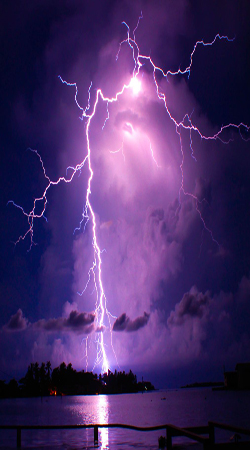 |
12.04.24- The Fed Is Already Backpedaling on the Pace and Depth of Rate Cuts
The underlying dynamics of the labor market bounced back in October, according to the Job Openings and Labor Turnover Survey (JOLTS) from the Bureau of Labor Statistics today. The data continues to be muddled by the Boeing strike that lasted through October and ended in early November, and by three hurricanes – Francine in early September, Helene in late September through early October, and Milton in mid-October – whose heavy rains and flooding temporarily shut down work sites in a substantial part of the country. Read More |
 |
12.03.24- Is the U.S. Banking System in Trouble?
While the rest of Europe was barely surviving thanks to the stupidity of their centrally planned feudal economies, Venice was a place where anyone, even the most illiterate peasant, could work hard, take some risks, and become fabulously wealthy. Read More |
 |
12.02.24- Central Bank Collapse Incoming! Silver Prices Will Explode!
|
 |
11.30.24- Gold-Backed Or Bust: Judy Shelton's Plan To Tame The Fed And Restore The Dollar
|
 |
11.29.24- Chinese Central Bank Just Secretly Bought 60 Tonnes of Gold
An explosive cocktail of Western institutional investors and central banks in the East buying gold this year is making the gold price rise sharply. Interest rate cuts and geopolitical strain will sustain this bull market. Read More |
 |
11.28.24- The Federal Reserve Lost Another $20 Billion in the Third Quarter; You Will Get the Bill
Keep in mind that Fed losses ultimately become your losses. The taxpayer is on the hook for the central bank’s shortcomings. Fed losses in the last quarter were 35 percent lower than in Q3 2023, but up from just over $16 billion in Q2. Read More |
 |
11.27.24- Judy Shelton has proposed an innovative approach to reintroduce a gold standard for the US dollar
Judy Shelton is an American economist known for her advocacy of the gold standard and her criticism of the Federal Reserve. She is a former economic advisor to President Trump and has held prominent roles in both the public and private sectors. Her latest book is Good as Gold: How to Unleash the Power of Sound Money. Read More |
 |
11.26.24- The Bureaucratic Dictatorship
|
 |
Designed to scale the network, L2s have become little islands on their own, each with its own rules, systems and barriers. Read More |
 |
11.23.24- Federal Reserve’s likely slowdown in rate cuts could disappoint borrowers
In September, its officials predicted that they would reduce their benchmark rate four times next year, on top of three rate cuts this year. Read More |
 |
|
 |
11.21.24- And Now, for Something Entirely Different: The Prospects for Trump’s Agenda
In Pennsylvania the corrupt Democrat authorities are openly defying the ruling of the State Supreme Court and counting invalid ballots in their effort to overturn the election of the Republican US senator. Read More |
 |
11.19.24- And Now, for Something Entirely Different: America Faces an Impossible Economic Crisis – Can Trump Fix It?
For the past several months I've been discussing the high probability of Donald Trump's return to the White House. Specifically, I have warned that the Biden/Harris Administration along with the Democrats have been using data manipulation to hide the growing threat of a stagflationary collapse within the U.S. within the next couple of years. Read More |
 |
11.19.24- And Now, for Something Entirely Different: America Faces an Impossible Economic Crisis – Can Trump Fix It?
For the past several months I've been discussing the high probability of Donald Trump's return to the White House. Specifically, I have warned that the Biden/Harris Administration along with the Democrats have been using data manipulation to hide the growing threat of a stagflationary collapse within the U.S. within the next couple of years. Read More |
 |
11.18.24- And Now, for Something Entirely Different: The Revolution Of 2024
More than that, there are hints of a return to sanity. Mainstream advertisers are suddenly returning to X, putting their economic interest above their tribalist loyalties. The editor of pro-lockdowns Scientific American, which had long blessed totalitarian measures as true science, has resigned. Read More |
 |
11.16.24- The Anatomy of a Bubble
-John Templeton, legendary mutual fund manager In 2006, I asked a realtor friend if we were in a housing bubble. He assured me that everything was fine. Defaults were low – and this is my favorite – “housing prices always go up”. Read More |
 |
|
 |
11.14.24- The Fed Is Trying To Save Itself
Over the past few months, in fact, we’ve repeated again and again that inflation will keep rising, and even identified some strange reasons why. Remember back during the early days of the pandemic when used car prices went through the roof? Read More |
 |
11.13.24- GOLD The FED Then END It
|
 |
11.12.24- Congress Should Fire
|
 |
11.11.24- All States Are Empires Of Lies
|
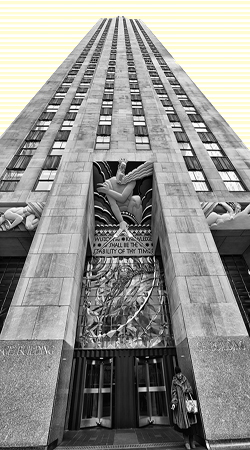 |
11.09.24- U.S. ‘Debt Tsunami’ Will Force Fed to Negative Rates, Push Gold to $8,000
|
 |
11.08.24- Is the Alternative to Inflation Actually Worse?
Inflation seems to be a controversial topic among economists. Which is strange because economists are supposed to study how the world works in order to help individuals (and, yes, governments) make better decisions. Read More |
 |
11.07.24- Donald Trump’s victory sets up traps for central banks
|
 |
11.06.24- Propaganda Blitzkrieg Erupts after RFK Pledges to Remove Fluoride
Corporate media and the vaunted “experts” they rely on to issue their pseudoscientific decrees were none too pleased with RFK’s plan to suspend the forced drugging of the American public with no informed consent whatsoever. Read More |
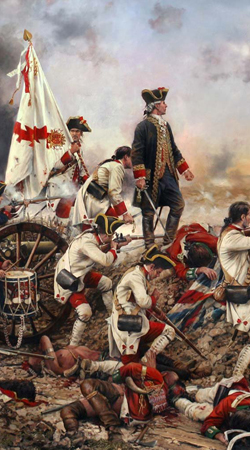 |
11.05.24- Global Economy Already In Recession? Fed Will Cut Rates More
|
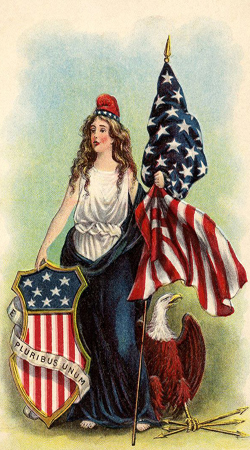 |
11.04.24- Interest Rates Are Soaring...
|
 |
11.02.24- Playing with Fire: Money, Banking, and the Federal Reserve
This is why a new, critical look at the Federal Reserve is needed, and why the Mises Institute is now happy to bring you this new documentary on the Fed. Read More |
 |
11.01.24- And Now, for Something Entirely Different: Why Trump MUST Win
They perceive cracks within the marble. Some perceive fissures. Reports Rasmussen: Read More |
 |
10.31.24- The Vigilante War is on!
Bond guru Jeffrey Gundlach says, in a video linked to below, that the reason interest rates are going up since the Fed set out on a path to lower them is that bond investors are starting to worry about how we are going to finance the nation’s deficits. Read More |
 |
10.30.24- Why Governments Have No Incentive to Help You
We live in a fascinating time in world history, a time when most people around the world seem to believe their governments are their friends. There to help, to find ways to make life safer, more comfortable, more secure. Read More |
 |
Today I had a long conversation with one of my oldest friends, who happens to believe that Donald Trump poses a grave threat to democracy. Read More |
 |
10.28.24- Oops: The Treasury Secretary spilled the beans about the coming inflation
It had already been decided at the 1944 Bretton Woods Conference that America and the US dollar would dominate the new international financial system. Read More |
 |
10.26.24- GDP Inflation: The Hidden Cost of Government Spending
We’re in an election year, and that means, of course, that the party trying to get re-elected is going to tout how great of a job that they’ve done for the voters. Read More |
 |
10.25.24- When This Breaks, it will be a Catastrophe
|
 |
10.24.24- The Federal Reserve: A Seamless Extension Of The Regime
The ruse has certainly worked. Economists and media pundits frequently refer to this alleged Fed “independence” as if it were a given, and as if there were a wall of separation between the executive branch and the central bank. Others take it even further, and in podcasts and social media one encounters a variety of crackpot theories asserting that the Fed is somehow at odds with the regime, or that the Fed answers only to bankers without regard for the regime’s agenda. Read More |
 |
10.23.24- 23% of tax revenue ($1.1 TRILLION) is now interest on the national debt
French finances were an absolute mess. The country was almost hopelessly bankrupt after decades and decades of costly warfare… and even more costly royal luxury. The young king’s predecessors, Lous XIV and Louis XV, spared no expense when it came to their comfort and grandeur, and the end result was the largest national debt in the history of the world up to that point. Read More |
 |
10.22.24- No Compromise With the Fed!
|
 |
10.21.24- And Now, for Something Entirely Different: How To Remove Fluoride From Your Water At Home
When Grand Rapids, Michigan, became the first city to add fluoride to its water supply in 1945, it was hailed as a major public health innovation aimed at preventing cavities. Many other cities quickly followed suit, and water fluoridation became a widespread practice nationwide. Read More |
 |
10.19.24- And Now, for Something Entirely Different: Goodbye Digital, Hello Physical
Sure, Election Day is Tuesday, Nov. 5. But the election is happening in real-time and will mostly be over by the end of this week because of early voting, mail-in ballots, drop boxes and ballot harvesting. Read More |
 |
10.18.24- Whip Inflation Never
On September 18, the Fed was so sure it had expelled inflation that it cut the federal funds rate for the first time since March 16, 2020. What’s more, the Fed went big. It cut 50 basis points. Read More |
 |
10.17.24- The Next Wave(s) of Inflation
This is a solid metaphor for inflationary periods. They don’t happen like a single big tsunami. They are typically processes that play out in stages over a decade or more. Policymakers try various fixes, and most fail or only provide temporary relief. Read More |
 |
10.16.24- Fake News on the Economy Is Driven by Fake Money
President Joe Biden joined Federal Reserve Chairman Jerome Powell in taking a victory lap for the supposedly strong economy. Read More |
 |
10.15.24- Inflation Eats the Food of the Poor, and Taxes Inflate
|
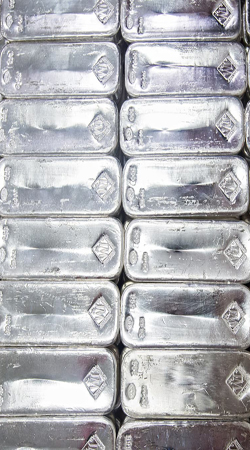 |
10.14.24- How the Bankers Outfoxed the Politicians
|
 |
10.12.24- Banks Need Your Trust Because They Don’t Have Your Money
Since I sincerely hope most of you don’t follow these stories as closely as I do, we’ll start with a quick recap: Read More |
 |
10.11.24- Mistakes from the Past
On September 18, the Federal Reserve cut the federal funds rate by 50 basis points. This was the first time the Fed cut rates since March 16, 2020. The aggressive rate cut was goaded on by people like Elizabeth Warren, who said Fed Chair Jerome Powell was “behind the curve.” Over the last three weeks something unexpected by the Fed has happened. The yield on the 10-Year Treasury didn’t follow the Fed’s rate cut down. Rather, it did the opposite. Read More |
 |
|
 |
The Unstoppable Path to Ever-Increasing Currency Debasement
It raises an important question… If one of the steepest rate hike cycles in history couldn’t defeat inflation… And the Fed can’t raise rates much further without bankrupting the US government because of the soaring interest expense… Read More |
 |
10.08.24- No Interventionist Government Or Central Bank Wants Lower Prices
Interventionist governments never reduce consumer prices because they benefit from inflation, dissolving their political spending commitments in a constantly depreciated currency. Inflation is the perfect hidden tax. Read More |
 |
10.07.24- Why the Fed’s Two-Percent Inflation Target Is Meaningless
|
 |
10.05.24- And Now, for Something Entirely Different: What Would World War III Really Look Like? It’s Already Starting…
|
 |
10.04.24- Did Jerome Powell Just Trigger A Stock Market Crash?
|
 |
10.03.24- And Now, for Something Entirely Different: Lookout Don't Look Up
I feel like I am surrounded by zombies. I am surrounded by zombies. I’ve ranted about this kind of thing before, here, here, and here. Read More |
 |
10.02.24- The Present Monetary System Is Heading for a Breakdown
|
 |
Congressional bill would remove vaxx manufacturers’ liability shieldsI assume most Armageddon Prose readers are familiar with the reason you can’t sue Pfizer for melting your liver or maiming your baby in utero, which is that they bribed Congress sufficiently back in the day to give the immunity. Read More |
 |
|
 |
09.28.24- Will the Fed Repeat 1970s
|
 |
|
 |
09.26.24- It's a Recession! But I digress.
|
 |
09.25.24- The Future Of The Fed
|
 |
09.24.24- Based on Today's Report, Powell Should be Biting His Lip on Inflation
The rise in inflation that I’ve said we could see by end of summer, continues to look increasingly likely to emerge soon and not like it is going to cut Chairman Powell’s rate cut a break. Read More |
 |
09.23.24- A Global Snapshot:
From blow-off market tops, empty political platitudes and an openly broken bond market to debased currencies and large swaths of the planet at war or inching toward escalation, it seems we are juggling aspects of the stupid, the broken, the insane and perhaps even…the evil. Read More |
 |
09.21.24- World Gone Wild: From the Fed to War to Violent US Politics against Trump Supporters
|
 |
09.20.24- Powell Scores His Soft Landing ... until it All Blows up
|
 |
09.19.24- Modern Slavery
I’ll have much more to say about it in tomorrow’s issue, so please tune in tomorrow. But today, I want to talk about the dangerous globalist threats to our freedoms that we presently face. Read More |
 |
09.18.24- Founding Father Edmund Randolph vs. The Federal Reserve
|
 |
09.17.24- Three Ways the US Government Could ‘Kick the Debt Can Down the Road’
|
 |
09.16.24- And Now, for Something Entirely Different: The 2nd Assassination Attempt
|
 |
09.14.24- A Plague On Both
For all the huffing and puffing I do about politics, you’d think that both candidates would have substantially different ideas for monetary policy, should they be elected. After all, this is supposed to be a finance blog. But the truth is, they don’t. Read More |
 |
09.13.24- Smoke And Mirrors: What Happens When Biden's Economic Manipulations Disappear?
|
 |
09.12.24- Bad Data And Bad Models: How The Fed Has Shattered Confidence
Even worse, what if it’s plugging that bad data into a faulty model? In July, the Bureau of Labor Statistics (BLS) made massive downward revisions to the job numbers. Poof – the agency simply erased 111,000 jobs from existence. Read More |
 |
09.11.24- What To Expect On Interest Rates For The Remainder Of 2024
Inflation has eased substantially and the labor market is weakening somewhat, albeit from a period of very low unemployment. Economic theory suggests both factors typically call for less restrictive monetary policy when compared to current levels. Read More |
 |
09.10.24 - And Now, for Something Entirely Different: The Deep State
|
 |
09.09.24- The Fed’s Balance Sheet Feeds Bailout Culture
These are the kinds of questions most people ask. But what people wrongly ignore is the Fed’s huge balance sheet and its related consequences: subsidizing explosive government deficit spending and creating a bailout culture. Read More |
 |
09.07.24- The Fed Is Our Friend -
If the Payrolls are lower than expected, the probability of a 50bp rate cut will rise significantly. Typically, this is supportive of precious metals and miners. Read More |
 |
09.06.24- And Now, for Something Entirely Different: Here's Who You Should Be REALLY Concerned About
|
 |
09.05.24- The Fed Is Cutting Rates Soon. Should I Wait to Get a Loan?
|
 |
09.04.24- Powell Announces “Pivot”
There’s a mountain of data suggesting the answer is yes, or if we’re not in a recession, we soon will be. We’ll explore this data below but let’s begin with the (supposedly) most powerful force in the U.S. economy — the Federal Reserve. Read More
|
 |
09.03.24- Average rate on a 30-year mortgage eases to 6.35%, its lowest level in more than a year
The rate fell to 6.35% from 6.46% last week, mortgage buyer Freddie Mac said Thursday. A year ago, the rate averaged 7.18%. Read More
|
 |
09.02.24- Central Banks Are DOOMED! Gold & Silver Are About To Go PARABOLIC!
|
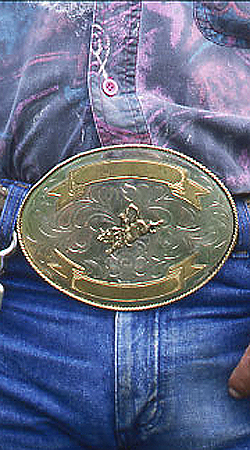 |
08.31.24- Fudging the Figures
According to the US Government, its debt stands at $35.210 trillion having grown 57% in the last five years. As the chart below shows, there was a big step up in early 2020 due to Covid. But subsequent attempts to control the deficit and therefore indebtedness have been absent. Read More |
 |
08.30.24- The Long, Slow Goodbye
“There is no trap so deadly as the trap you set for yourself.” ― Raymond Chandler, Long Goodbye Intro: Inside James Grant’s latest Interest Rate Observer there is a nice piece on Gold in it titled Long goodbye to the dollar standard fromwhich some important comments should be shared. As always his writing is part history, part observation, and part dry humor. Here is a summary and analysis of that article. Read More |
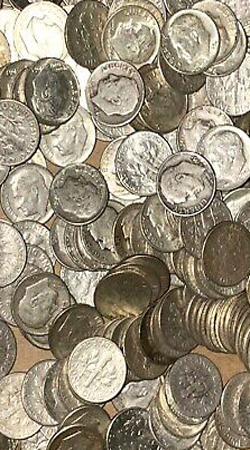 |
08.29.24- Tumbling Down
I have to keep it short today as medical issues got in the way of writing time, but I’d like to point out a few things from the news headlines below. Economist David Rosenberg, who predicted the 2008 financial collapse, said that the 818,000 adjustment in new jobs that I wrote about here on The Daily Doom signify an economy that is in a worse meltdown than the Fed realizes. Read More |
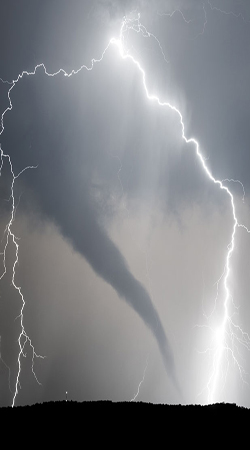 |
08.28.24- Inflation is Forever
"The time has come for cuts," Powell said at the Jackson Hole Economic Symposium Read More |
 |
08.27.24- And Now, for Something Entirely Different:Lies, Lies, Lies and MORE Lies!
Several of us suffered the ignominy and revulsion of the political rallies these past few weeks. I was particularly dumbfounded by the free-flowing falsehoods from the Nationalist American Socialist Party (NASP). You may know them as the Democrat Party, but there is nothing democratic about this new political blight on our republic. They have transformed this political party into agents for Karl Marx and everything he envisioned in his communist manifesto and treatises on social re-engineering. Read More |
 |
08.26.24- Uneasy Fed Admits We Are Approaching Recession
Remember how the Biden administration, the Fed, and corporate media has kept saying the economy and job market were “strong”? Well, it turns out that isn’t the case. Read More |
 |
08.24.24- Starting with a 25 basis point rate cut 'makes a lot of sense to me': Fed's Harker
"Starting at 25 makes a lot of sense to me," Harker told Yahoo Finance Friday during an interview at the Kansas City Fed's annual economic symposium in Jackson Hole, Wyo. Read More |
 |
|
 |
08.22.24- Gold Pares Gains After New Record as Focus Turns to Jackson Hole
Bullion climbed to as high as $2,531.75 an ounce, taking this year’s gain to more than 22%, before giving up some of the advance. Powell’s address on Friday at the annual Jackson Hole symposium in Wyoming will be closely analyzed for clues about the central bank’s thinking on widely expected rate cuts — often seen as positive for non-interest bearing gold. Read More |
 |
|
 |
08.20.24- We Don't Have a Wage Problem; We Have a Money Problem
For a while, it was "Fight for $15," but with rampant price inflation, a $15 an hour minimum wage isn't sufficient. Now it's "Fight for $20." Heck, it might even be "Fight for $25" at this point. I understand people's frustration with wages. Their pay doesn't keep up with rising prices. Read More |
 |
08.19.24- The Federal Reserve and Pandora’s Box
|
 |
08.17.24- What has the Fed Done to Our Lives?
Wars must be funded, and for this, governments functioning as states call upon the banking system for assistance. Central Bank counterfeiting, which is another name for inflation, is the fuel that energizes the forces of war. Inflation, or counterfeiting, amounts to issuing receipts for something that doesn’t exist, which legally is the prerogative of the central bank. Calling such receipts money allows them to be created in massive amounts quickly. When the U.S. Congress votes to send billions of fiat money to Ukraine, Israel or anywhere else, no one questions the nature of what is being sent because legal tender laws make it all copasetic. Read More |
 |
08.16.24- Sandy Hook Black Mirror
|
 |
08.14.24- A $150,000 House In 1988 Now Costs $707,500; Thank You, Fed!
Chart data from Case-Shiller, mortgage calculation based on Fannie Mae 30-year mortgage rates, chart by Mish Read More |
 |
08.13.24- Why the Fed Can't Win –
If rates start falling, that would certainly get speculators excited. But let’s examine the situation a little more closely. Read More |
 |
08.12.24- The Fed Is Powerless
We are further told that prevailing conditions may demand multiple axings. And that these adjustments to the overnight lending rate will work healthful impacts. Read More |
 |
08.10.24- "Japan Mixed The Batter, The Fed Will Bake The Cake..."
|
 |
08.09.24- Don’t bank on a put from Jay Powell’s Federal Reserve
Please use the sharing tools found via the share button at the top or side of articles. Copying articles to share with others is a breach of FT.com T&Cs and Copyright Policy. Email licensing@ft.com to buy additional rights. Subscribers may share up to 10 or 20 articles per month using the gift article service. More information can be found here. |
 |
08.08.24- Fed Fails Spectacularly Again and Again!
The Fed can easily be made to work but nobody apparently wants it to, or we’d change it. This rose bush puts out flowers that only stink and wither, but it has thorns the size of your fingers that cling to your pockets and tear at your flesh. We have three articles that were prominent in my news searches today that lay out just how miserably (for all of us) the Fed is failing at its actual mission. Read More |
 |
08.07.24- The Failures of Fiat Currency and the Federal Reserve: An Analysis
This article dives into the main points of criticism surrounding these issues, focusing on the 7 key failures of the Federal Reserve including the following objectives: Read More |
 |
08.06.24- Blood in the Streets!
We may be facing such an inflection point right now. Today, I’ll show you why, and what’s at stake. Read More |
 |
The new portable death “pod” is on track to claim its first victim this year after winning approval from the Swiss government. Florian Willet, the CEO of the pro-euthanasia organization The Last Resort, announced the launch of the machine during a recent press conference. Read More |
 |
08.03.24- Central Banks Purchase Gold to Offset Their Own Money Destruction
We must begin by clarifying the question. It is true that inflation is slowly decreasing, but we cannot say that it is under control. Let us remember that the latest CPI data in the United States was 3% annualized and that in the Eurozone it is 2.6%, with eight countries publishing data above 3%, including Spain. Read More |
 |
08.02.24- Well, Bite my Lip for Repeating this, but Pilot Powell Says We're Now Coming in for a Soft Landing
|
 |
08.01.24- The Economic Situation of the West
|
 |
07.31.24- No Fed "Pivot" Tomorrow
What does it mean for markets and your money? Today we’ll explore those questions. Read More |
 |
07.30.24- And Now, for Something Entirely Different: You’ll Never Work
Did we just witness the suicide of Wokery? I think you saw what’s called, in the argot of progressive thinking, the “queering” of the Olympics. That was some spectacle. First, Death on a Pale Horse came galloping down the Seine River so that no one would miss the point of the symbolism to follow: the beheaded Marie Antoinette portrayed singing in the window of a flaming palais. Read More |
 |
07.29.24- Inequality Is Caused By Inflation
|
 |
07.27.24- Why Radical Spending Cuts Are Needed
The title of the IMF’s recently published World Economic Outlookis titled, The Global Economy in a Sticky Spot. The source of the stickiness, per the WEO, is services inflation. Namely, nominal wage growth, especially in the U.S., is increasing above goods price inflation. Read More |
 |
07.26.24- Bidenomics Kicks in, Economy is on a tear, Inflation plunges and Unemployment Falls!
I’ve had, one might say, a great run for all of my predictions this year. Every step along the way, I was able to show where they came true. The economy slowed to a crawl in the first quarter, inflation returned to rising when few thought it would. Read More |
 |
07.25.24- And Now, for Something Entirely Different: Empire of Lies
Why does it fear truth as the vampire fears garlic? The answer, we hazard, reduces to its desperate quest for prestige. Government equals authority. And an authority is an authority. Read More |
 |
07.24.24- Going the Way of the Denarius
Throughout history, there has been an extraordinary tendency for governments (and cultures) to follow similar paths. Even regarding eras thousands of years apart, we see people behaving in much the same way, over and over. This is particularly true in the case of “wrong moves.” Over and over, people and their governments make the same mistakes, seemingly never learning from past errors. Read More |
 |
07.23.24- Republican Platform Ignores Real Causes of Inflation
|
 |
07.22.24- And Now, for Something Entirely Different: Acoustic Evidence Proves Beyond All Doubt More Than One Shooter
|
 |
07.20.24- Politicians Pressure Powell to Give Up the Inflation Fight – Rate Cuts Ahead?
Morgan Stanley thinks the Federal Reserve could start cutting rates as early as September, based on the idea that “inflation is finally under control.” Read More |
 |
07.19.24- Something to Crow About
These days, everywhere you look, there are lunatics roaming around. You see them at the market or the gas station. Or wandering down Main Street. They’re crazy and deranged, and they believe what the media has told them. That Donald Trump is Hitler. What’s more, some of these crazies, in the spirit of democracy, are eager to put their fingerprints on the turn of history. Read More |
 |
07.18.24- Donald Trump warns US Fed chair not to cut rates before the election
Donald Trump has warned Jay Powell not to cut US interest rates before November’s presidential vote, but said if elected he would let the Federal Reserve chair serve out his term if he was “doing the right thing”. Read More |
 |
07.17.24- Stocks Soar for Economy in Doldrums
Traders are now betting 100% odds that Powell & Co. will lower interest rates in September, and Powell’s dovish tones, as talked about in my last editorial, certainly sound like he is preparing to move that way, though I have argued he won’t. The oddity here is that he is—after saying the Fed needs to really be convinced that inflation is headed back down—averring to the possibility of a cut. Read More |
 |
07.16.24- Dollar dips ahead of Powell, bitcoin climbs as investors
In the aftermath of the shooting, investors narrowed the odds of a Trump victory. Online betting site PredictIt, opens new tab showed bets of an election win for Trump at 67 cents, up from Friday's 60 cents, with Joe Biden at 27 cents. Read More |
 |
07.15.24- And Now, for Something Entirely Different: Did We Just Witness the FBI’s Attempt on Trump’s Life?
Incompetence is a possibility. In all federal agencies including the military, ability and merit have been set aside in order to make race- and gender- based appointments. Read More |
 |
07.13.24- Welcome to Inflationary Depression
Yes, this is exactly the kind of article that people pass over because it seems like it doesn’t have broad application. In fact, it does. It affects the core of issues like our city skylines, how we think about urbanism and progress, where we vacation and work and whether the big cities are drivers or drains on national productivity. Read More |
 |
07.12.24- Fed to End Inflation Fight Before Job is Done
To Florence, Italy. In 1397. To the establishment of the Medici Bank by Giovanni di Bicci de’ Medici. There you will find the early framework for interlinking banking, business, and politics to consolidate wealth and power. Read More |
 |
07.11.24- And Now, for Something Entirely Different: The Clinton-Harris Ticket
Democratic firm Bendixen & Amandi conducted a poll to see how the public would respond to a Clinton presidency. Of the 86% of respondents who watched the disastrous Trump-Biden debate, only 29% believe Biden is mentally fit to serve a second term. Read More |
 |
07.10.24- The Great Monetary Pivot Of 2024
Then, in late 2015, they started a rate-hiking cycle that lasted until the repo market turmoil in late 2019. Read More |
 |
07.09.24- Goldman Sachs Failed Major Test
|
 |
07.08.24- Why the Federal Reserve is Running Out of Monetary Oxygen
Stated differently, virtually everything the Fed does for the alleged benefit of the American economy is both unnecessary and a ruse. Read More |
 |
07.06.24- Central Banks Added More Gold to Reserves in May
Central banks added a net 10 tons of gold in May, according to the latest data compiled by the World Gold Council. Central banks bought 23 tons of gold, offset by 13 tons in gross sales. The National Bank of Poland was the biggest gold purchaser in May, adding 10 tons of gold to its reserves. Read More |
 |
07.05.24- The Byzantine Blueprint: A Guide for America’s Monetary Revival
America seems tapped out. It’s out of money. It has lost the moral high ground. It resorts to coercion to keep its allies – or rather, vassal states – in line. It prints money to cover its lies. Read More |
 |
07.04.24- And Now, for Something Entirely Different: A Debate That Exposed Political Collapse
A debate between a man who has little, if any, understanding of complex geopolitical issues and a brain dead warmonger who was never the sharpest knife in the drawer has exposed the irreversible decline of the US empire. Read More |
 |
07.03.24- Central Banks Diversify from USD-Assets to Other Currencies and to Gold
The US dollar is still by far the most dominant global reserve currency, among many reserve currencies held by central banks, but its share has been eroding for years, as central banks have been diversifying to other reserve currencies, and also to gold. But the process is slow and uneven. Read More |
 |
07.02.24- US dollar dips as Fed's Powell's dovish comments offset upbeat jobs data
|
 |
07.01.24- The Coming US Budget Disaster Will Impoverish Americans
The latest Congressional Budget Office (CBO) budget and economic outlook estimates show the extent of the challenges of the United States fiscal nightmare. The CBO expects a budget deficit of $1.9 trillion in 2024, a year of alleged robust economic growth and record tax receipts. They expect revenues to reach $4.9 trillion, or 17.2 percent of GDP, in 2024, which will rise to 18.0 percent by 2027 and remain at that level until 2034. Read More |
 |
06.29.24- What Happens When Rate Cuts Come Too Soon
Keep in mind that Federal Reserve Chairman Powell kept downplaying inflation as “transitory” in 2021, but also ended up wildly wrong (almost negligent) Read More |
 |
06.28.24- Federal Reserve Floats Weaker Version of Planned Bank-Capital Overhaul
The Federal Reserve has shown other US regulators a three-page document of possible changes to their bank-capital overhaul that would lighten the load on Wall Street lenders, according to people familiar with the matter. Read More |
 |
06.27.24- You Can't Taper A Ponzi Scheme
Many believe the Federal Reserve is running what amounts to a giant Ponzi scheme. That’s because the US government’s obscene spending and skyrocketing debt have reached an inflection point where the whole system will collapse unless the Fed pumps an ever-increasing amount of new fake money into the system. Read More |
 |
06.26.24- Who Needs The Fed?
The tech sector plummeted nearly 2.5% on Monday following weeks of melt-up action. And the main culprits were some of the same stocks responsible for dragging the averages higher this year, specifically the semiconductors. The VanEck Vectors Semiconductor ETF (SMH) continues to fill those gaps, dropping more than 3.4% yesterday — its third straight decline. It’s now fallen nearly 8% from last week’s highs. Read More |
 |
06.25.24- Who Needs The Fed?
|
 |
06.22.24- The Federal Reserve’s Cure May Actually Be Worse Than the Disease
Like I explained in my last article, the miraculous Bidenomic economy has been dominated by first historic and now merely persistent inflation. Since his swearing in, our purchasing power has officially declined about 19%. Read More |
 |
06.22.24- The Federal Reserve’s Cure May Actually Be Worse Than the Disease
Like I explained in my last article, the miraculous Bidenomic economy has been dominated by first historic and now merely persistent inflation. Since his swearing in, our purchasing power has officially declined about 19%. Read More |
 |
06.15.24- The Fed’s Whipped Inflation!
That is because May’s inflation data came issuing this morning. And it disappointed expectations — or rather exceeded expectations. A Dow Jones survey of economists had divined a 3.4% inflation rate. Yet the United States Department of Labor reported a mere 3.3% inflation rate. Read More |
 |
06.14.24- The Fed's next decision will likely mean Americans are going to wait a lot longer for any interest rate cuts
The Federal Open Market Committee is set to announce its next interest-rate decision on Wednesday, and following a hot jobs report, there's a strong chance rates will once again remain steady. According to the CME FedWatch Tool, which estimates the likelihood the Federal Reserve will change interest rates based on market predictions, there's a 99.4% chance rates will stay where they are as of Monday. Read More |
 |
06.13.24- Gold prices steady around $2,300 with Fed rate decision, CPI on tap
The yellow metal was nursing a sharp decline in recent sessions as traders priced out expectations of U.S. rate cuts in the face of sticky inflation and a robust labor market. The dollar shot up to one-month highs, pressuring metal prices, while Treasury yields also rose. Read More |
 |
06.12.24- Shrinking Fed rate cut expectations to keep US Treasury yields elevated
|
 |
06.11.24- The Entire System Is Crumbling! Major Red Flags Are Popping Up For Banks, Small Businesses And Retailers
Just look at what is happening to our banks. Read More |
 |
06.10.24- Why is Keynesian Economics Collapsing?
|
 |
06.08.24- It's The Fed That's A Risk
Whistling a happy tune, the Federal Reserve vice chairman for supervision, Michael Barr, recently testified to Congress that “overall, the banking system remains sound and resilient.” A more candid view of the risks would be less sanguine.Read More |
 |
06.07.24- How People Can
We can only fight the fire started by the arsonists at the Fed from spreading further into our lives. In this article, I want to review the ways that people fight the Fed’s fire—higher prices everywhere and the reasons why everyone should be actively fighting against inflation. Read More |
 |
06.06.24- Up in Smoke
A few small things settled in a direction that could give Powell a chill that causes him to shift from battling inflation to driving it back up nice and hot, just as stock investors and bond investors are back to hoping he will do. Changes in the labor market make it appear labor may FINALLY be reaching that point where new jobs are not coming fast enough and old jobs ending more quickly to where the changes couldstart to push unemployment up. Still, I’ve pointed out a few head fakes along the way, and this could easily be another one. More data coming in on Friday could clarify the employment picture. Read More |
 |
06.05.24- Central bank gold buying picks up in April
|
 |
06.04.24- Is the Fed Driving Us Into Recession?
|
 |
06.03.24- US firms grow more pessimistic on economic outlook, Fed survey shows
The U.S. central bank's latest temperature check on the health of the economy also showed that the jobs market continues to more normalized levels. Read More |
 |
06.01.24- Interest Rates: What Are They and What Do They Actually Do?
Interest rates are an embedded part of the economy at both the global and the household level – but what impact does the Effective Federal Funds Rate (EFFR) actually have on the economy, and why? In simple terms, the EFFR is the target rate set by the Federal Open Market Committee of the U.S. Federal Reserve (also known as the Fed), which meets eight times a year to determine it. Read More |
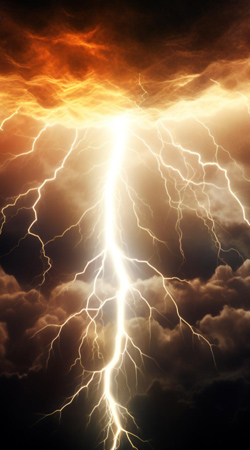 |
05.31.24- Think Inflation Is Done?
|
 |
05.30.24- No, Corporate Greed Is Not The Cause Of Inflation.
|
 |
05.29.24- Time Is Running Out For Gold Stocks
It sure seems that way if you step back and take a long view of their decision-making. Fed officials project this aura of authority. You might imagine them as hyper-intelligent experts in the field of economics and finance making carefully calculated monetary policy decisions based on a thorough understanding of all the dynamics in the economy. After all, they must have risen to these important positions at the Fed based on their economic acumen? Read More |
 |
05.28.24- Is Hyper-Inflation that Destroys a Currency a "Solution"?
When predicting the future, we're best served by following "what benefits the wealthy and powerful," as that is the likeliest outcome. |
 |
05.27.24- MASSIVE: Election Spending, Government Debt, No Buyers...
|
 |
05.25.24- Continual Rise in the Cost of Living… And Why the Fed Has No Shame
Markets recovered their poise over the last 24 hours, as investors were relieved after Fed Chair Powell stuck to his recent views on the economic outlook. In his remarks yesterday, he said that recent data didn’t “materially change the overall picture” and that on inflation “it is too soon to say whether the recent readings represent more than just a bump.” In addition, he reiterated that if “the economy evolves broadly as we expect, most FOMC participants see it as likely to be appropriate to begin lowering the policy rate at some point this year.” So that all helped to validate market pricing, which still expects 71 bps of rate cuts from the Fed by the December meeting. Read More |
 |
05.24.24- The Mirage Of "Lower Inflation"
|
 |
05.23.24- The Fed is already insolvent. Here’s how we think this plays out
The tone of the meeting must have felt frantic… even desperate… because the value of the British pound had been falling for weeks. Read More |
 |
05.22.24- Fed's Barr: Inflation data 'disappointing,' policy needs more time
"Inflation readings in the first quarter of this year were disappointing. These results did not provide me with the increased confidence that I was hoping to find to support easing monetary policy," Barr said in remarks prepared for delivery at an Atlanta Federal Reserve conference on financial markets. Read More |
 |
05.21.24- CPI's Little Head Fake
|
 |
05.20.24- When Ideological Bubbles Trump Economic Thinking
Recently Esther Duflo, a Nobel prize winning economist, revealed herself to be such a person. In a Financial Times interview with Simon Mundy, she said the West owed a “moral debt” of about $500 billion annually to the global south due to its contribution to climate change and the resulting harm. Read More |
 |
11.18.23- And Now, for Something Entirely Different: Entire Financial System
|
 |
05.16.24- Will High Inflation Ease Up Soon? You Won't Like the Answer
If you were hoping that the official inflation rate would ease, especially on the necessary goods and services you need to buy, then you might have to be patient. Read More |
 |
05.15.24- Trump’s Secret Plan to End Currency Wars
|
 |
05.14.24- Will the Fed Lose Control?
|
 |
05.13.24- And Now, for Somthing Entirely Different: Can a Country as Far Gone as America Recover?
|
 |
05.11.24- How Do People’s Experiences
|
 |
05.10.24- The Consequences of Interest Rate Suppression
Throughout European history, there has been a dislike of interest rates. For the last two millennia this was reflected in Christian (and Muslim) bans on usury. But interest is charged by a lender for good reason. A lender is ceding possession of money or credit to another, losing the facility to turn them into goods for his or her own consumption. Read More |
 |
05.09.24- Does Powell's Plan End One major investor and one major economist, both of whom predicted the Great Recession crash, give the Fed an “F” for its inflation fight and an “F” for where it is taking the economy. Fed is a failed inflation fighter Read More |
 |
05.08.24- Forward Guidance: The Fed Sounds Like A Wizard Reading Chicken Bones
I totally endorse a view by Stan Druckenmiller, the Fed Should Stop Forward Guidance. Read More |
 |
05.07.24- And Now, for Something Entirely Different: The Catalyst for a Banking Renaissance
Visa, Mastercard, American Express, and other large companies process many of these payments. Bitcoin, on the other hand, does not have anywhere near the capacity to handle this kind of volume. Read More |
 |
|
 |
This is really bad news for the food supply, which relies on precious pollinators like bees to keep the life cycle going. Without these vital critters, there will be no more food available for anyone, including the sinister who think they are going to somehow escape the horrors they are unleashing. Read More |
 |
05.04.24- Fed Cornered – There’s No Way Out!
Just before their latest meeting, CNBC reported that not much would change, and summarized the “feeling in the room” regarding Fed rates: Read More |
 |
05.03.24- Expect Higher Interest Rates Through the End of 2024. Fed Blames ‘Lack of Progress’ on Inflation
|
 |
05.02.24- Governments Could Stop Inflating If They Wanted. But They Won’t
|
 |
05.01.24- Unification Of CBDCs? Global Banks Are Telling Us the End Of the Dollar System is Near
|
 |
03.18.24- Blame the Fed for ‘Shrinkflation’
|
 |
“Federal agencies are funding tools for the financial sector similar to those social media is using to target misinformation and hate speech,” says written testimony from Jeremy Tedesco, senior counsel at the nonprofit First Amendment law firm Alliance Defending Freedom (ADF). “Unfortunately, this is just the tip of the iceberg.” Read More |
 |
03.15.24- Why economists are warning of another US banking crisis
The red letter day is March 11, when US central bank the Federal Reserve will end the bank term funding program (BTFP), a year after it began in response to the failures of regional banks Signature, Silvergate and Silicon Valley. Read More |
 |
03.14.24- Layoffs could be coming as debt-laden firms navigate the pain
While the job market still looks strong on paper, hiring conditions are set for a slowdown later this year, according to David Rosenberg, economist and the founder of Rosenberg Research. That's because the economy — and what's been touted as a surprisingly strong job market — are actually weaker than they appear, he told Business Insider, predicting that unemployment could jump to 5% by the end of the year. Read More |
 |
03.13.24- No Such Thing As A Neutral Fed
Everyone is familiar with the typical claims that the Federal Reserve strives for maximized employment and low inflation, and that the Fed is the regulator of the banking industry. But king of them all is of the supposed political neutrality of the Federal Reserve. Read More |
 |
03.12.24- Gold Is The Canary In The Economic Coal-Mine
Peter opens with the fact that the United States is probably in a recession already, even though the government statistics say otherwise: Read More |
 |
03.11.24- South Dakota's Anti-Central Bank Digital Currency Bill
|
 |
03.09.24- And Now, for Something Entirely Different: The End of Ideology?
They’d already established the building blocks of the administrative state so that real experts could be in charge and rule society with a steady hand. Read More |
 |
03.08.24- Powell Says
|
 |
03.07.24- A Circus of Errors
It seems strange for one company’s earnings call to have such a widespread effect, but many are saying that this is all a part of a technological revolution, in which real productivity will increase dramatically due to artificial intelligence powered by chips and hardware developed and produced by companies like Nvidia. Read More |
 |
03.06.24- Key Indicator Signals ‘Recession Ahead’ – Fed Faces Pressure to Cut Rates
It’s not coming down to the Federal Reserve’s supposed 2% target – let alone low enough to cease being a persistent problem for millions of families. Nor is it even clear that the rate of price level increases is on a path lower in 2024. Read More |
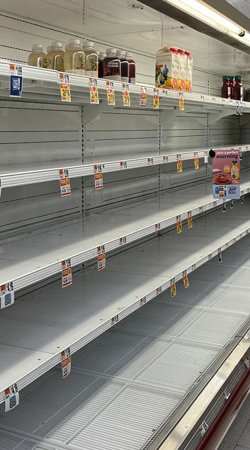 |
03.05.24- One Bank Asks "Could A Central Bank Somewhere Be Buying Crypto Assets?"
|
 |
03.05.24- Questions About Gold The CFTC And Fed Won’t Answer
|
 |
03.02.24- Inflation Soars,
|
 |
03.01.24- Fed's Bowman says she will stay 'cautious' on monetary policy
|
 |
02.29.24- Real Wages Turn Negative Again as Price Inflation Refuses To Go Away
According to the BLS, Consumer Price Index (CPI) inflation rose 3.1 percent year over year during January, after seasonal adjustment. That’s the thirty-fifth month in a row of inflation well above the Fed’s arbitrary 2 percent inflation target. Read More |
 |
02.28.24- Don’t Be Surprised If The Fed Raises Interest Rates
I’ve been right in my prediction that we will get a soft landing with no recession, with the important proviso that the Fed pauses its rate-hiking cycle, which it has already done. Read More |
 |
02.27.24- Hubris Runs Rampant at the Fed
“But the overall price level doesn’t come down. It will fluctuate. And some . . . goods and services will go up, others will go down. But overall, in aggregate, the price level doesn’t tend to go down except in extreme circumstances”. Read More |
 |
02.26.24- Oil ends lower, posts weekly decline as US rate cut hopes dim
Brent crude futures settled down $2.05, or 2.5%, at $81.62 a barrel, while U.S. West Texas Intermediate crude futures (WTI) were down $2.12, or 2.7%, to $76.49 Read More |
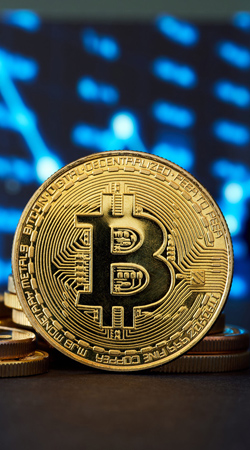 |
02.24.24- The Federal Reserve Enables and Grows Big Government
In this episode of the Money Metals' Midweek Memo, host Mike Maharrey explains how and why the Fed enables an ever-growing federal government. Mike opens the podcast using an analogy drawn from the TV show "My 600-Pound Life," explaining how when somebody is engaged in destructive behavior, there is almost always an enabler. Read More |
 |
02.23.24- Federal Reserve records massive losses, makes up fictitious value called ‘deferred assets’ to compensate
The Federal Reserve lost $114.3 billion in 2023 and doesn’t seem to care. Maybe that is why the federal government has run up $34 trillion in debt, while they pretend government programs are paid for. They don’t care. They can always print more money. Read More |
 |
|
 |
02.21.24- Massive Money Printing Will Accelerate as Debt Soars
You may remember that the Biden administration expected a significant deficit reduction from its tax increases and the expected benefits of its Inflation Reduction Act. Read More |
 |
02.20.24- Interest on the Debt will exceed defense budget this year
The world had been at war with itself for nearly a decade. And though the conflict became officially known as the Seven Years War, it might as well have been called ‘World War Zero’ because it involved just about every major power on the planet. Read More |
 |
02.19.24- Fed Bank Bailout Program
Then what? There are a lot more questions than answers. For instance, will the Fed blink? Read More |
 |
02.17.24- And Now, for Something Entirely Different: Dissecting Stupidity
|
 |
02.16.24- Puzzled
|
 |
02.15.24- Lingering Inflation Risks Keep Fed Officials in Wait-and-See Mode
The risk that inflation could remain stuck above their 2% target is guiding Fed officials’ preference to keep interest rates where they are for now, even as investors have clamored for cuts. Read More |
 |
02.14.24- Inflation Won’t Die
The consumer price index (CPI) rose 3.1% in January. That’s a decrease from December’s 3.4%, but it exceeded consensus estimates of 2.9%. Core inflation, which excludes food and energy, rose 3.9% on an annualized basis, which is unchanged from December. But the consensus estimate was 3.7%. Core inflation also rose at its highest rate since April 2023. Read More |
 |
02.13.24- Inflation: Consumer prices rise 3.1% in January, defying forecasts for
The Consumer Price Index (CPI) rose 0.3% over the previous month and 3.1% over the prior year in January, slightly higher than December's 0.2% month-over-month increase but a deceleration from December's 3.4% annual gain. Read More |
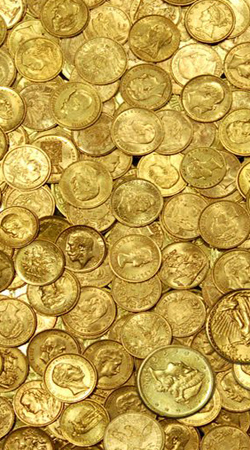 |
02.12.24- Jerome Powell Begs Washington to Save the American Economy
Since August, total debt has piled on more than $1 trillion in only a few months, establishing another record total of $34 trillion. Read More |
 |
02.10.24- The Fed asks America to fill in the blanks
For most of the past decade, even as the debt spiraled out of control and passed $20 trillion, $25 trillion, $30 trillion, etc., hardly anyone in the media said a word about it. If anything, they would insist that the ‘debt doesn’t matter.’ Read More |
 |
02.09.24- And Now, for Something Entirely Different: Global Economic War – Where the Dollar Stands in the Chaos
|
 |
02.08.24- Stocks and Bonds in Jeopardy as Powell's Punch Hits Home
|
 |
02.07.24- Here’s When the Fed Will Cut
Before last week’s Federal Reserve meeting, I offered readers the following forecast of what would happen at that meeting: On Wednesday, the Fed will leave its target rate for fed funds unchanged. That decision will keep the federal funds target at 5.50% as set at the July 26, 2023 meeting. Over the course of fifteen FOMC meetings beginning March 16, 2022, I’ve been correct in all my forecasts including the “skipped” rate hikes at the June, September, November, and December 2023 meetings. Read More |
 |
02.06.24- The Fed Cannot Cut Rates As Fast As Markets Want
Unfortunately for many, headline figures will support a hawkish Federal Reserve, and the latest comments from Jerome Powell suggest rate cuts may not come as fast as bond investors would like. Read More |
 |
02.05.24- How Will The Fed React To The Supply-Driven Inflation Shock In Goods
US non-farm payrolls put the final nail in the coffin of a March rate cut on Friday by printing at almost double the consensus estimate of economists surveyed by Bloomberg. Payrolls rose by 353,000 in January versus an expected gain of 185,000, and the December figure (already a beat) was revised higher by 117,000. Even the most bullish forecaster on the survey under-clubbed the number to the tune of 53,000 jobs (more than 1 standard deviation). Average hourly earnings also beat expectations to print at 0.6% m-o-m, which took the year-on-year figure back up to 4.5%. Read More |
 |
02.03.24- The numbers may be fake, but they have plunged a dagger into the back of the Powell pivot fantasy
|
 |
02.02.24- Powell Pummels Lunatic Market Mania
Powell drop-kicked the “Fed pivot in March” mantra to the floor today, driving the Dow down more than 300 points (-0.82%), the S&P down 79 points (-1.61%) and the topsy-tech NASDAQ down a major 345 points (-2.23%). Asked about the March mania, Powell said,
|
 |
02.01.24- The US Is Living
I repeated my claim that debt markets and debt levels made the future of Fed policies, currency moves, rate markets and gold’s endgame fairly clear to see. Of course, as facts change, opinions change as well. Read More |
 |
01.31.24- Inflation has slowed. Now the Federal Reserve faces expectations
|
 |
01.30.24- Inside the Darién Gap; Agenda 2030 Mass Migration Plan Exposed
|
 |
01.29.24- And Now, for Something Entirely Different: Let’s Pray That Texas
|
 |
01.27.24- And Now, for Something Entirely Different: The Left Had Better Watch Its Fani
The Atlanta district attorney, Fani Willis, decided to play superhero in her own performance art production to rescue the Dems from their disastrous decision to let gropey Joe lead the party. She figured she could clear the field for Joe by indicting Donald Trump, and 18 others, on federal racketeering charges. It seems that the Donald did the same thing that every losing Democrat since Al Gore has done: he questioned the vote-counting. That’s considered “protecting our democracy” when a Democrat does it, but according to Fani, it’s criminal conspiracy when a Republican does it. Read More |
 |
01.26.24- The Fed Lost Billions and You're Going to Pay for It!
The last time the Fed ran a net operating loss was 1915. The loss was a direct result of the Fed’s interest rate hikes to fight price inflation. Read More |
 |
01.25.24- The Chaos of Conflict Spreads and Burns the Hopes of Central Bankers
The Dow ended another doggy day down as the S&P eked a tiny speck upward while bond yields continued to rise as the market continued to price Fed rate cuts out further as prospects for inflation become more heated. Read More |
 |
01.24.24- Inflation Gives Fed the Finger
Let’s begin the analysis with the latest data. Last Friday, the Bureau of Labor Statistics reported that inflation (as measured by the Consumer Price Index, CPI, on a year-over-year basis) was 3.4%. That’s practically the Federal Reserve’s worst nightmare. Read More |
 |
01.23.24- Don’t Tax the Rich. End the Fed!
|
 |
01.22.24- Federal Reserve Payments to Banks Trigger Largest Ever Operating Loss
The Fed said it lost roughly $114.3 billion in 2023, its largest-ever annual loss. Read More |
 |
01.20.24- This is a Blueprint for How the Dollar Goes Kaput
With no agreement on spending anywhere on the horizon for the current fiscal year, the US Congress passed yesterday a ‘Continuing Resolution’ to keep the government temporarily funded for another six weeks. Read More |
 |
As the Fed’s Quantitative Tightening hums along on autopilot, its assets have fallen by nearly $1.3 trillion as of its weekly balance sheet released on Thursday, and its liabilities have fallen in equal amounts. The dropping liabilities are a result of QT. Here we’ll discuss two of the Fed’s big four liabilities: ON RRPs and Reserves. Read More |
 |
01.18.24- How many times the Fed will cut interest rates is a hot topic in Davos
But they aren't necessarily the hottest topics — that could be reserved for what the Federal Reserve may or may not do with interest rates in 2024. Why, you ask? Read More |
 |
01.17.24- Will the Fed Sabotage Trump?
Do those two conditions have anything to do with each other? The Federal Reserve would say no but history would say yes. Read More |
 |
01.16.24- Congratulations, Fed!
Strangely, few seem to ask the source of this astounding 50% leap. Wall Street has certainly cheered this vast increase, but few analysts ponder the source, or ask if the source is a net plus for the economy and nation. Read More |
 |
01.15.24- Futures Dip As Doubts Emerge About March Rate Cut,
|
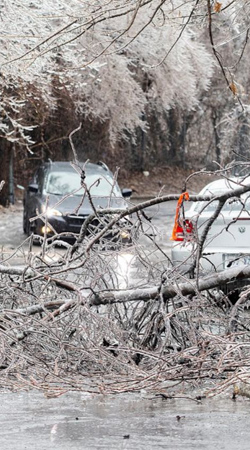 |
01.13.24- And Now. for Something Entirely Different: Washington Escalates
Washington chose this moment to escalate in order to direct the news away from Israel’s trial in the International Court of Justice. Regardless, Washington’s neoconservatives intended escalation from the beginning of the Israeli-Hamas war. Read More |
 |
01.12.24- And Now, for Something Entirely Different: Political Man vs.
It is a contest between two mighty men — political man — and technological man. At stake is the destiny of everyman, presently in the siege of political man. Under political man the nation has taken aboard $34 trillion of debt. Read More |
 |
01.11.24- What Happens
|
 |
There are shocking similarities between South Africa and the United States of America, explained Simon Roche, the director of foreign affairs for Suidlanders, an Afrikaner preparedness organization, in an episode of Conversations That Matter . Read More |
 |
01.09.24- Mission Accomplished: Yellen Says Fed's Battle is Over!
Janet Yellen coos that the Fed has landed so softly we didn’t even feel the wheels touch the tarmac. It’s “mission accomplished,” according to Jesse Felder’s take on Yellen’s praise for the Powell landing. Apparently inflation has been tamed now with no significant damage to labor and no recession. Read More |
 |
01.08.24- What the Fed Accomplished: Distorted the Economy, Enriched the Rich and Crushed the Middle Class
Let’s summarize what the Federal Reserve accomplished since embarking on its massive interventions to control volatility, risk, bond yields, interest rates, the mortgage market, bank subsidies and liquidity, all of which can be summed up as the cost of credit-capital, that is, capital that is borrowed into existence based on some form of collateral or income stream. Read More |
 |
01.06.24- Zero Hedge Admits it Was Wrong about Fed Pivot
|
 |
01.05.24- Corrupt Money, Corrupt World
|
 |
01.04.24- 2024 Could Be Horrible For The Dollar
Here are 3 big reasons why Peter thinks inflation might rise even higher this year. 1. The Fed wants to boost Biden’s reelection Read More |
 |
01.03.24- The Fed Will Lose Control In 2024
|
 |
01.02.24- And Now, for Something Entirely Different: 2024 Will Be A Year Of Historic Natural Disasters
|
 |
01.01.24- New York Fed: Inflows to reverse repo facility surge, hitting $1.018 trillion
Friday's inflows were expected to jump and were well above the $829.6 billion seen on Thursday. Friday's inflows were the first time above $1 trillion since Nov. 13. Read More |
 |
 |